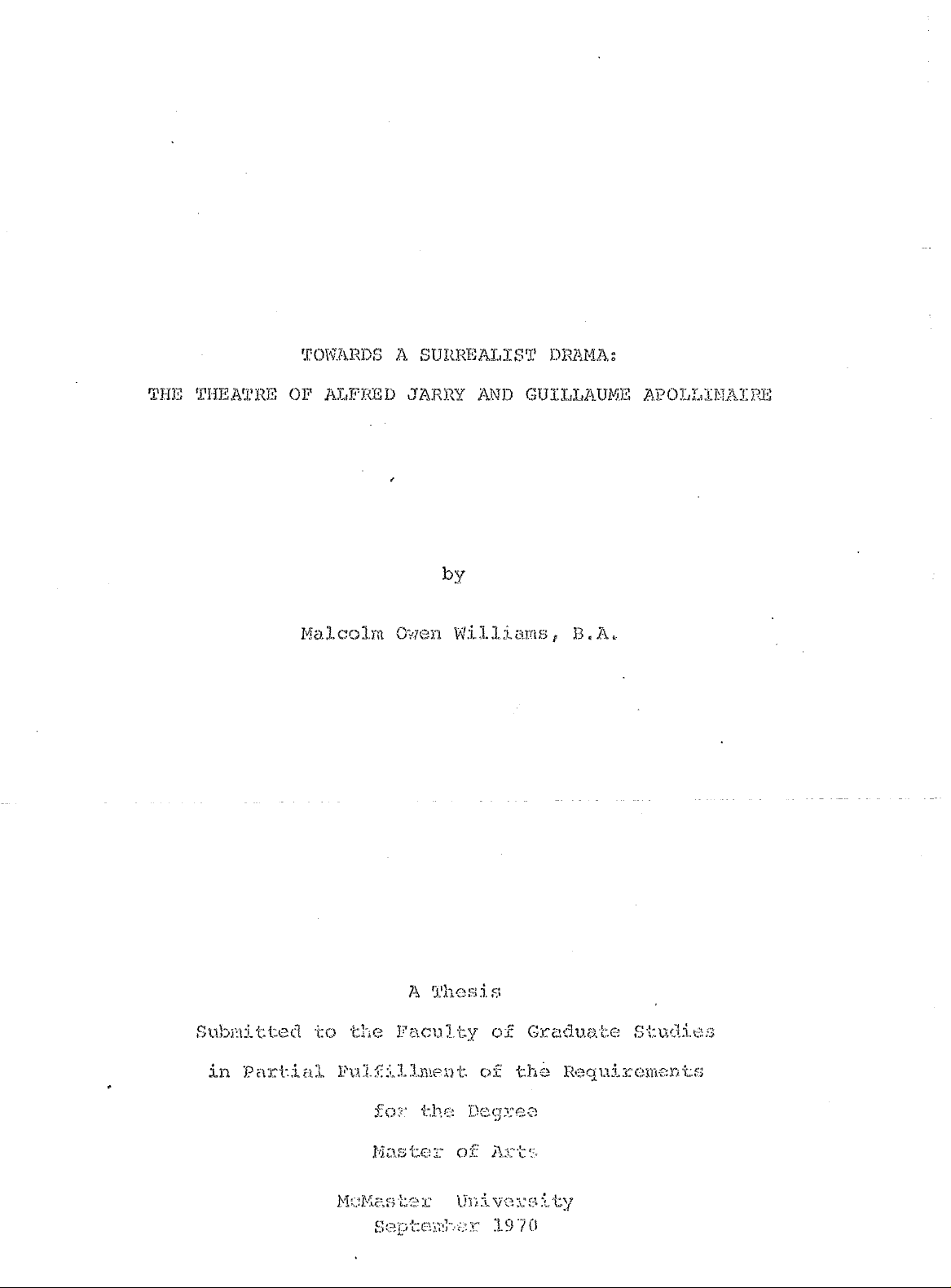
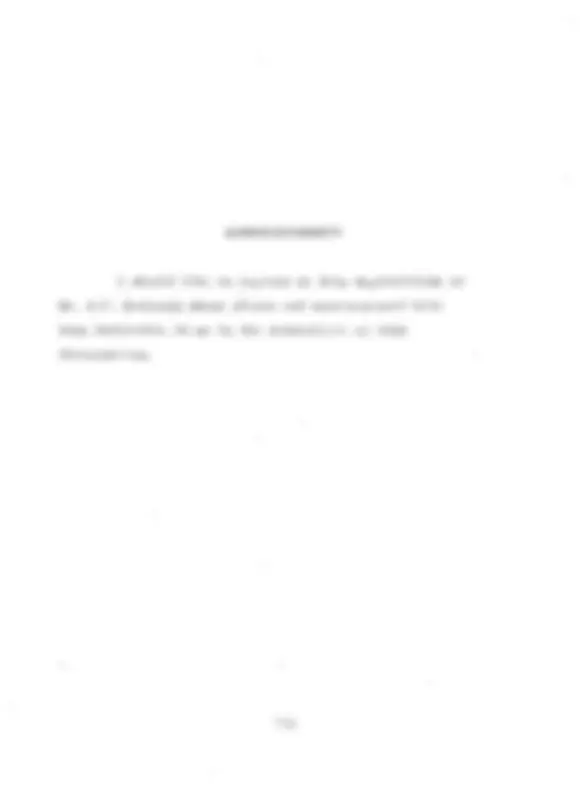
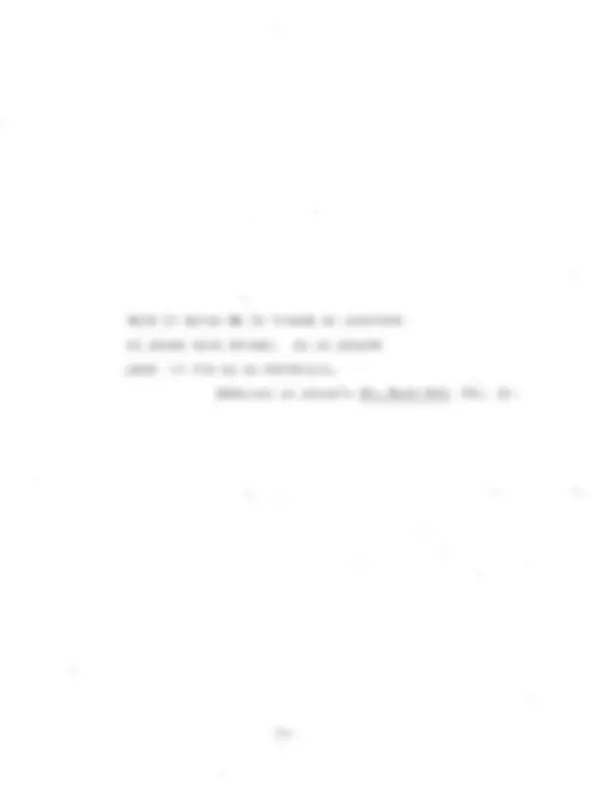

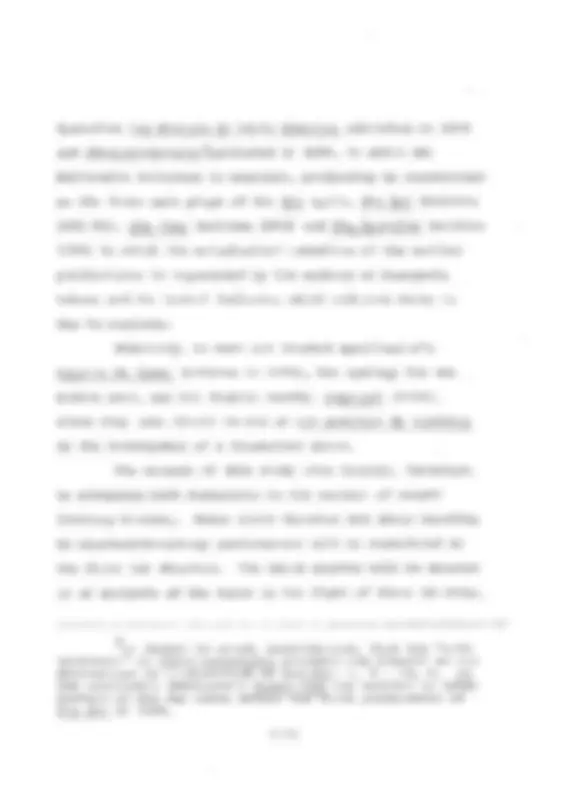
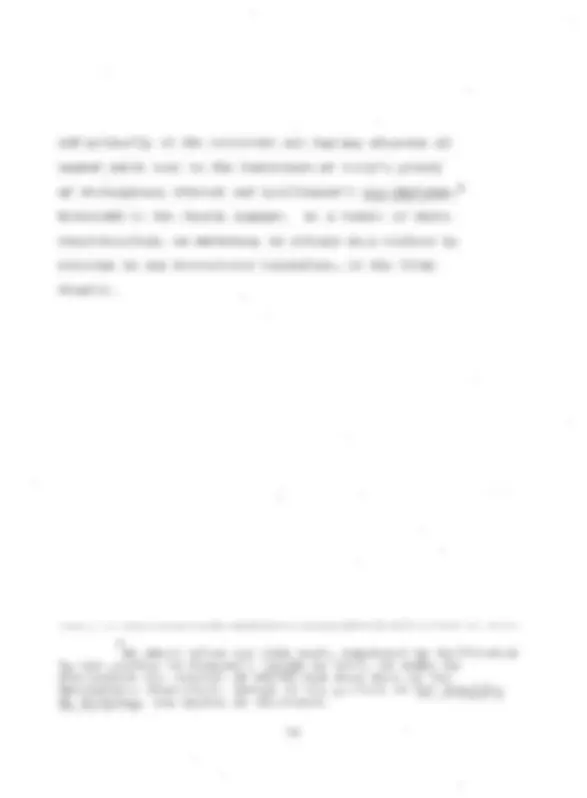
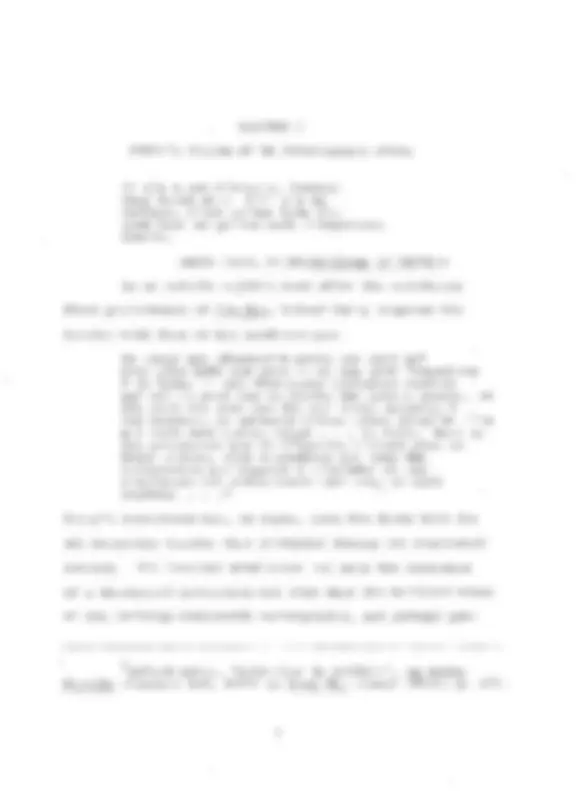
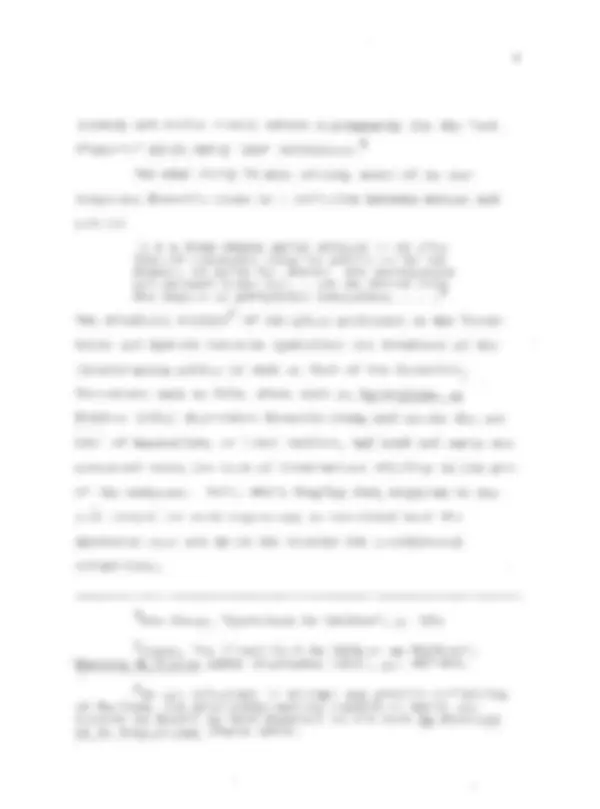
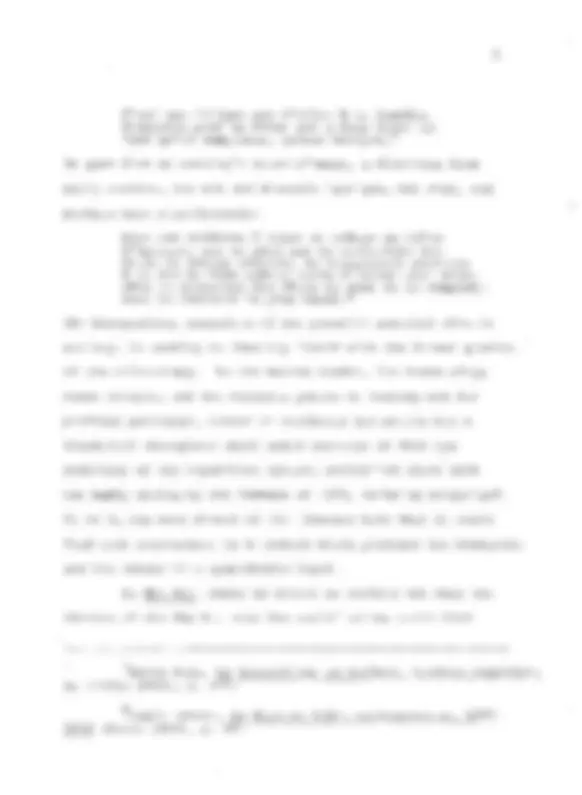
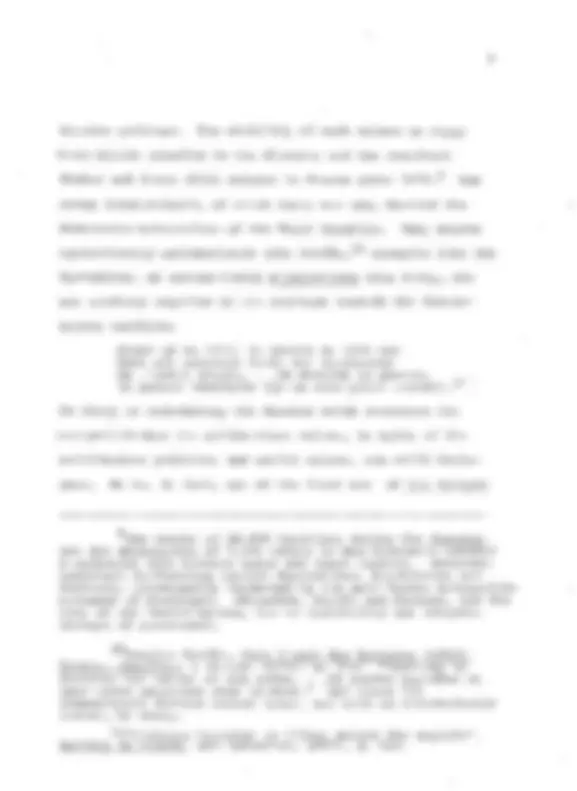
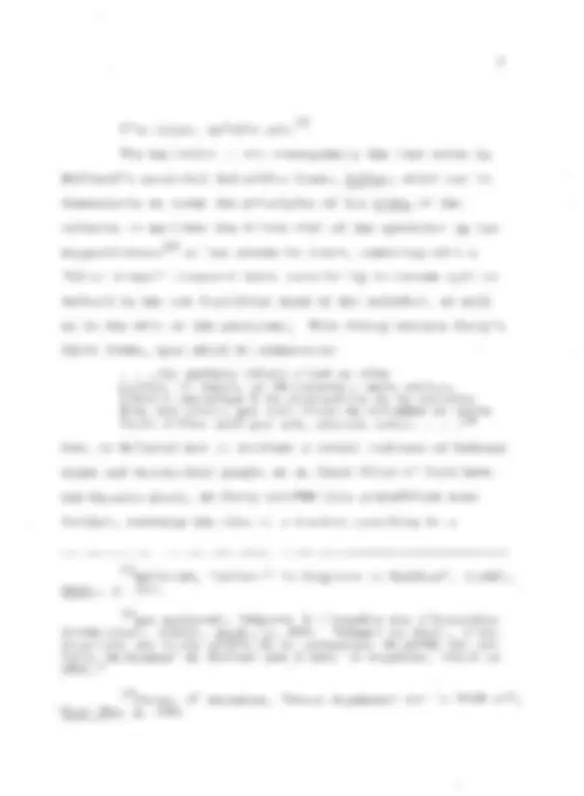
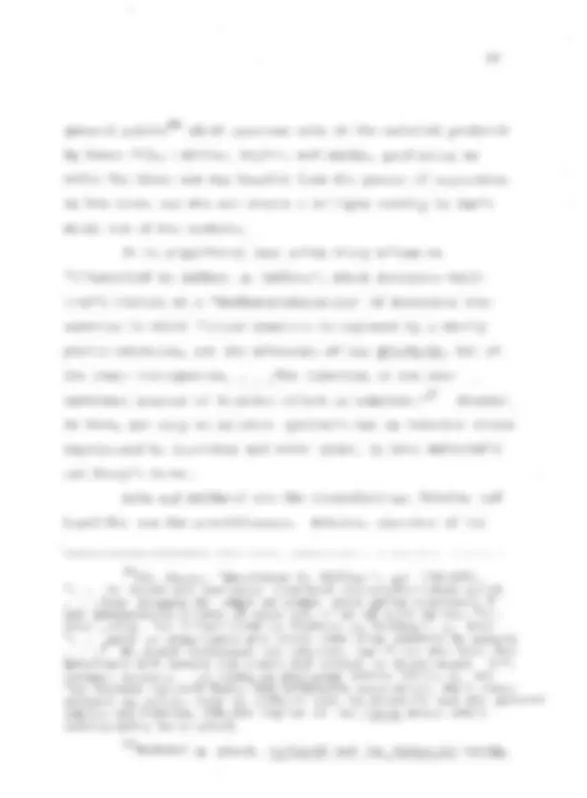
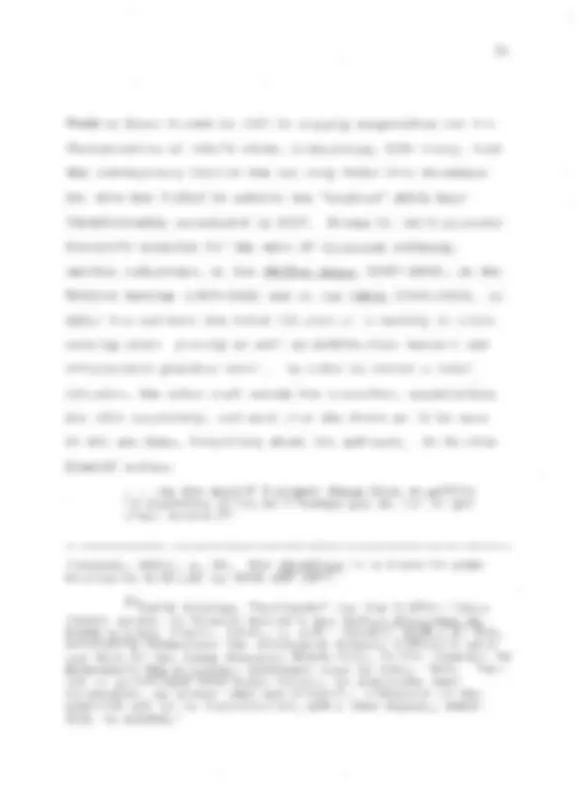
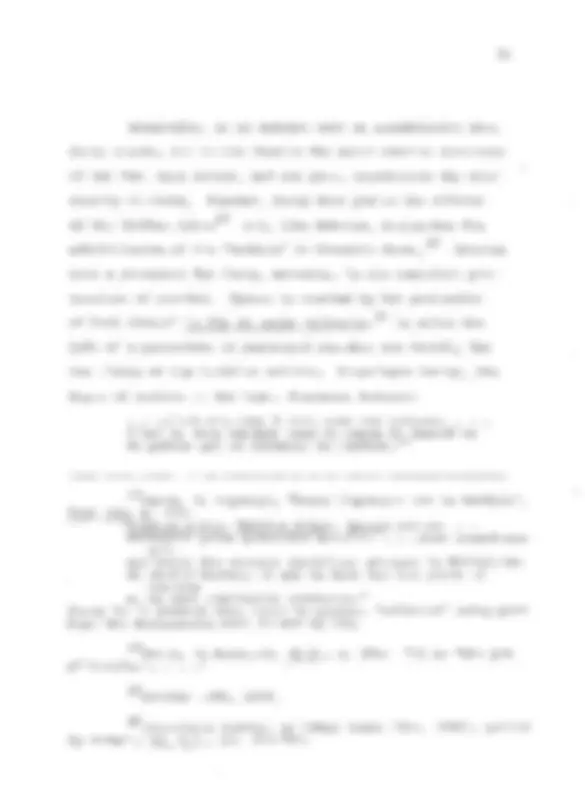
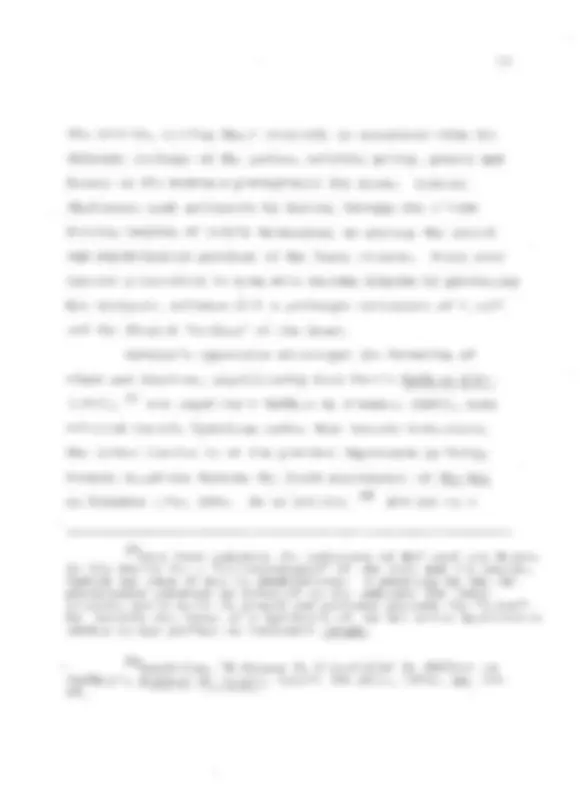
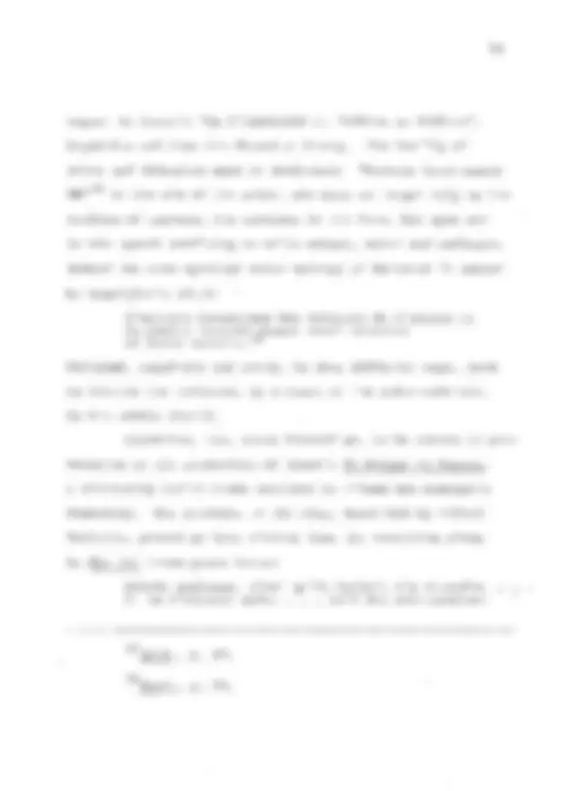
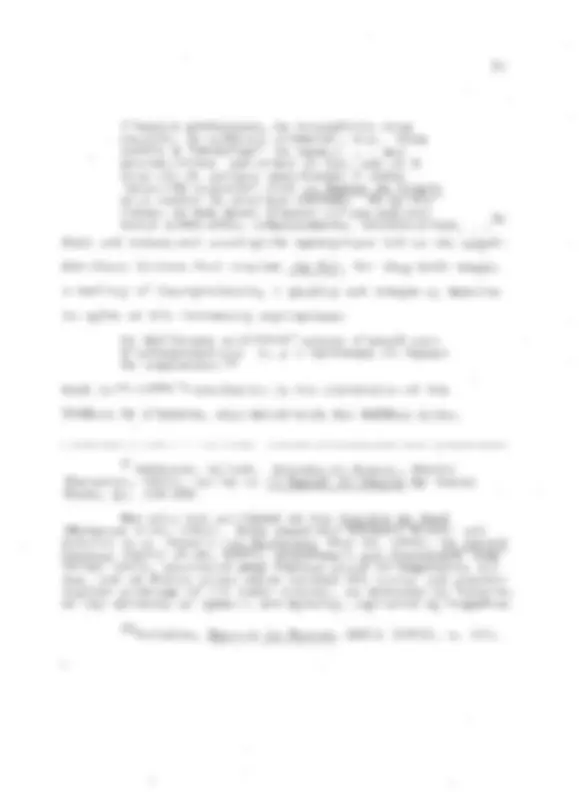
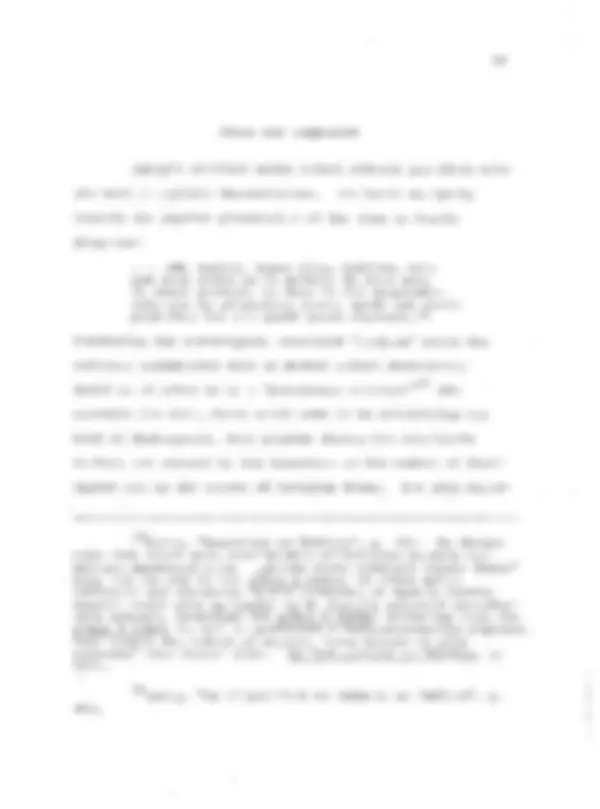
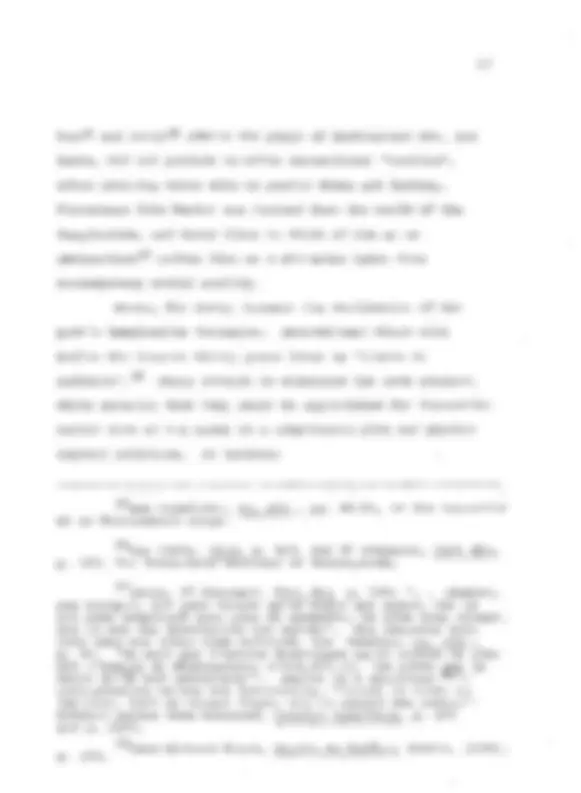
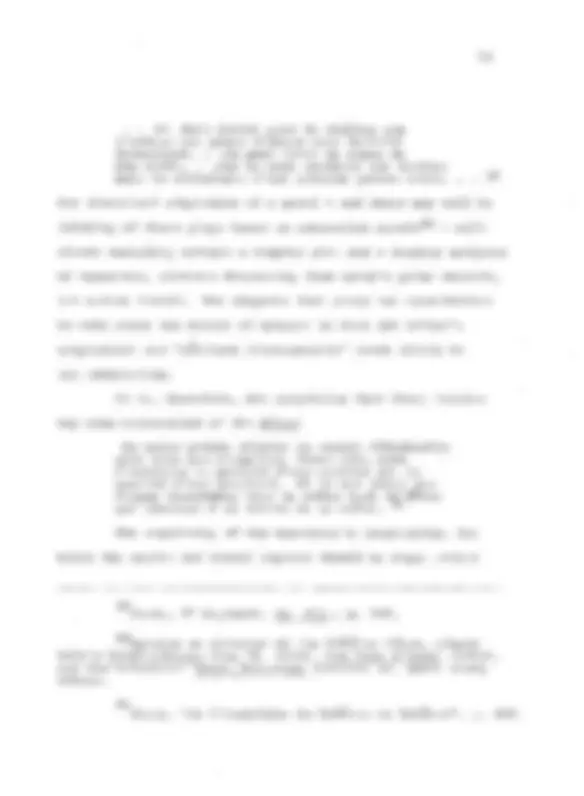
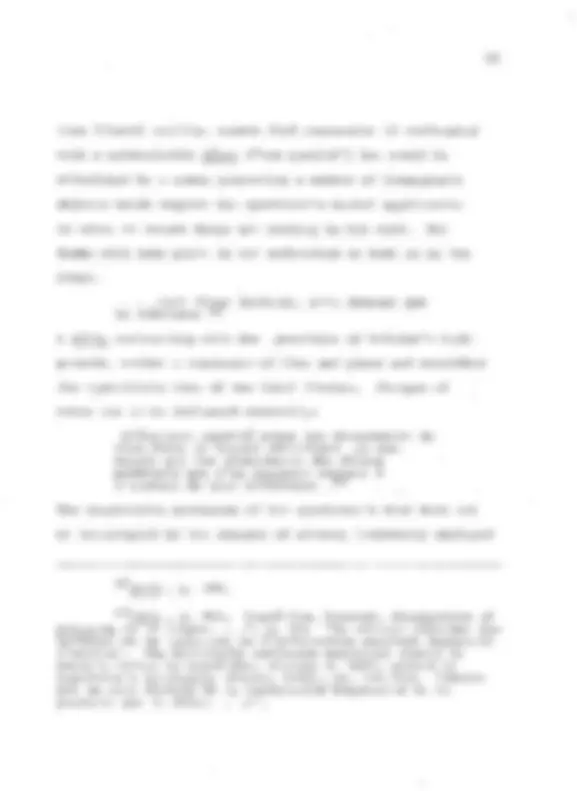
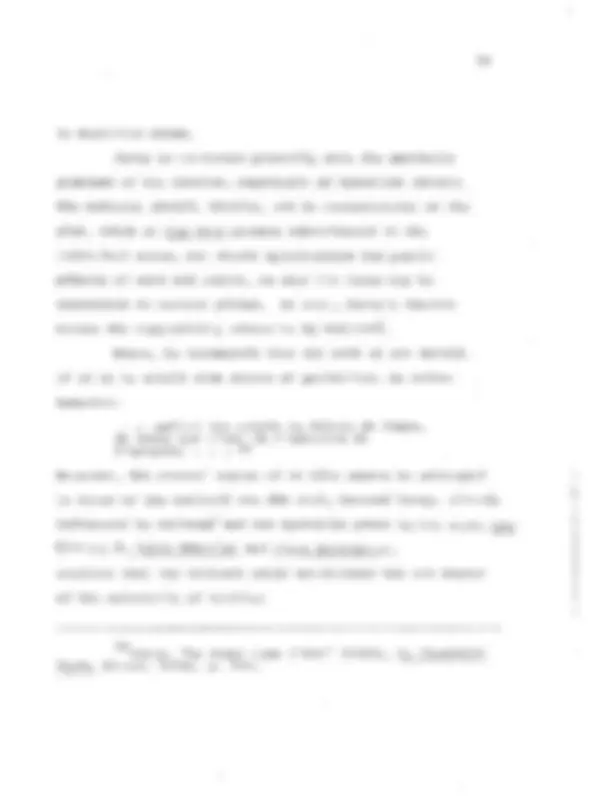
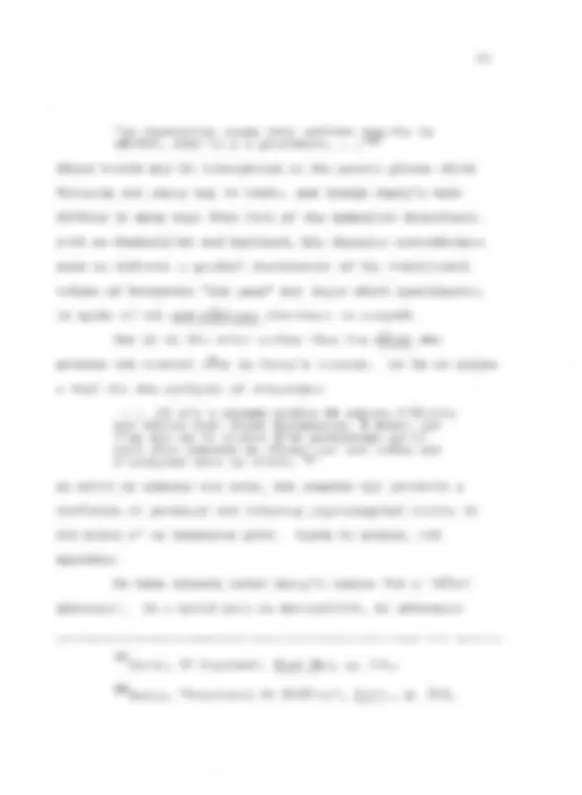
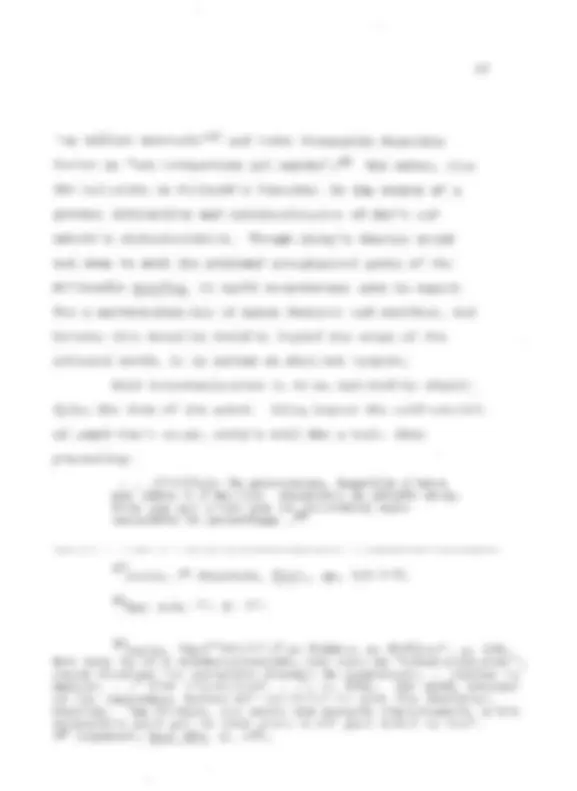
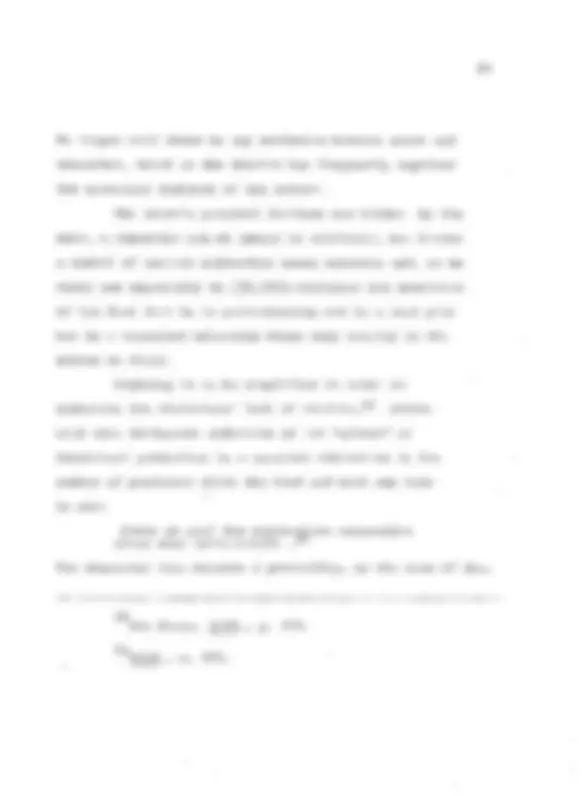
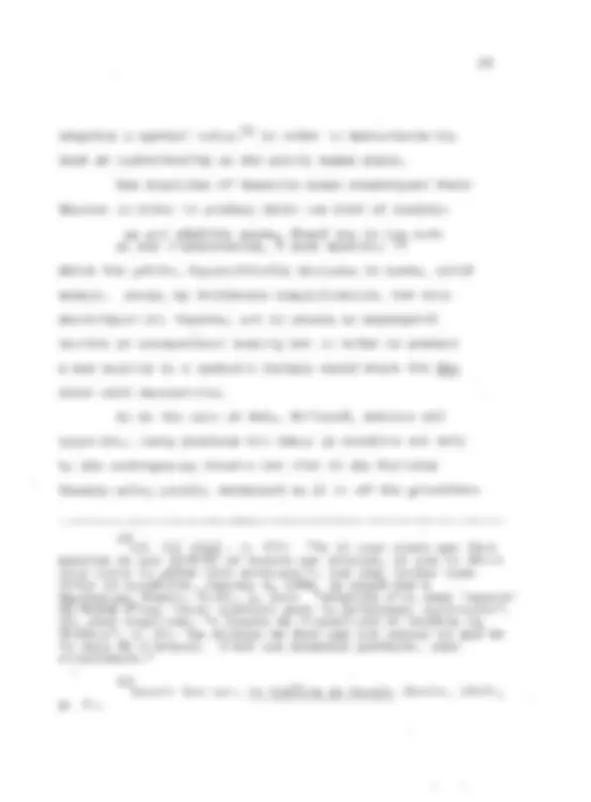
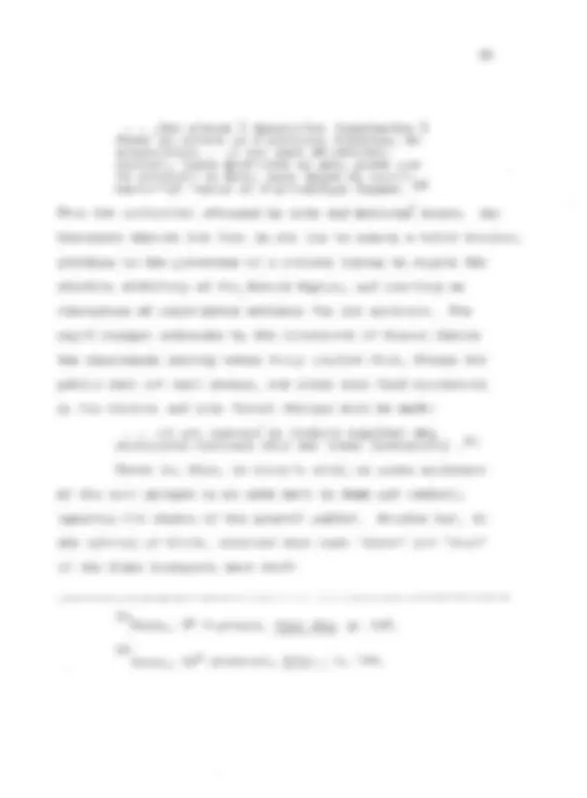
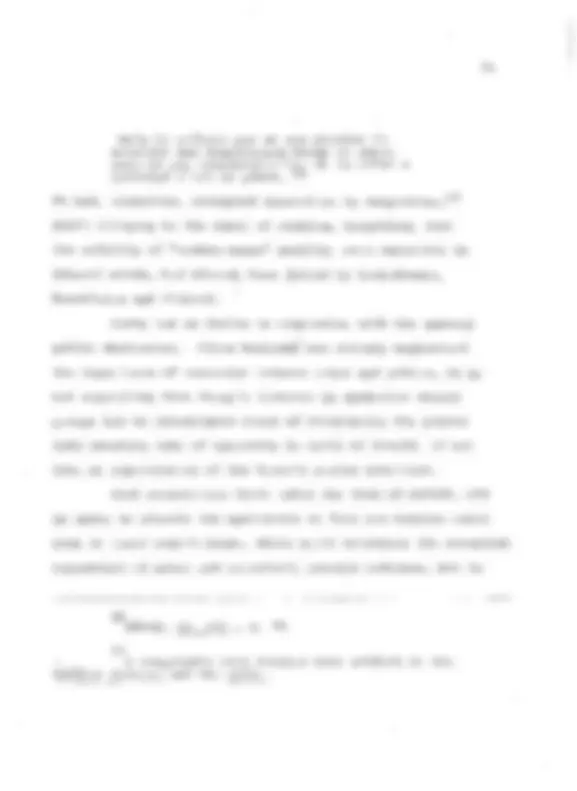
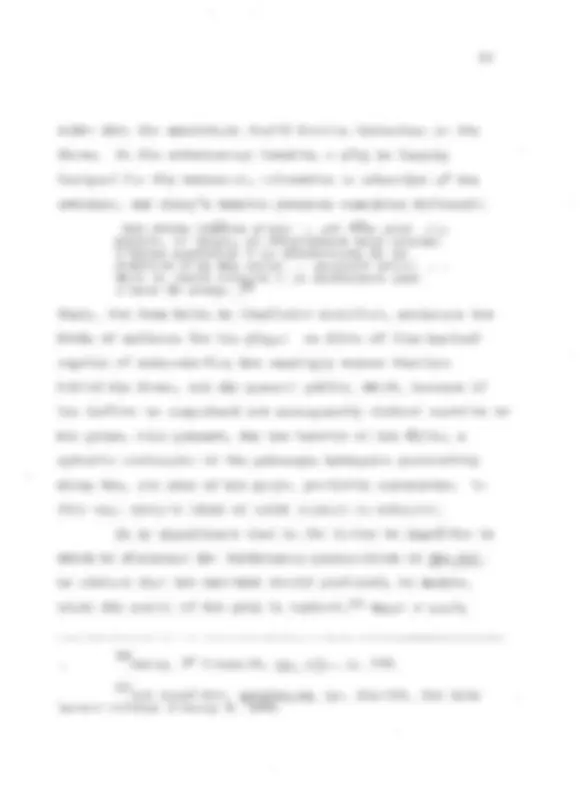
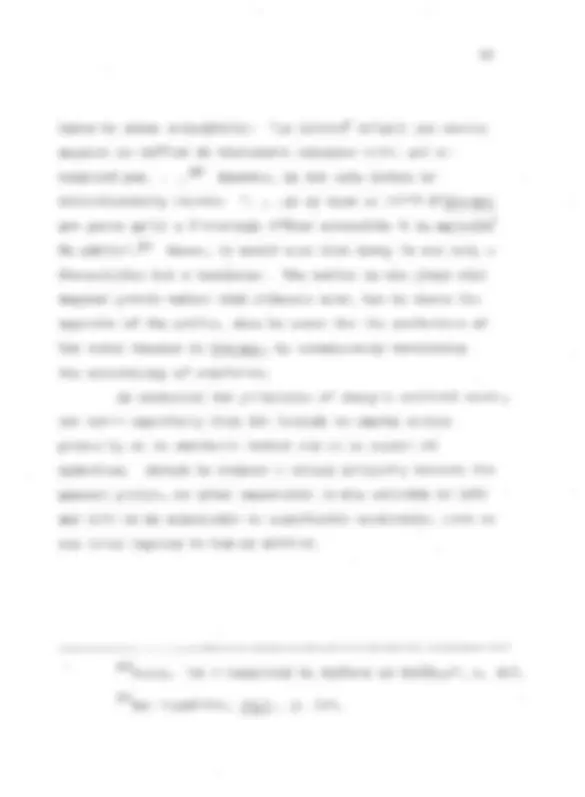
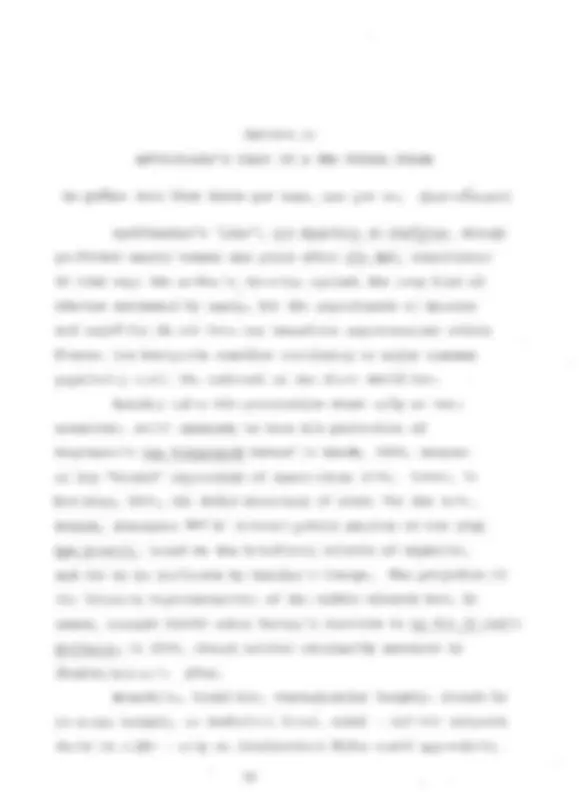
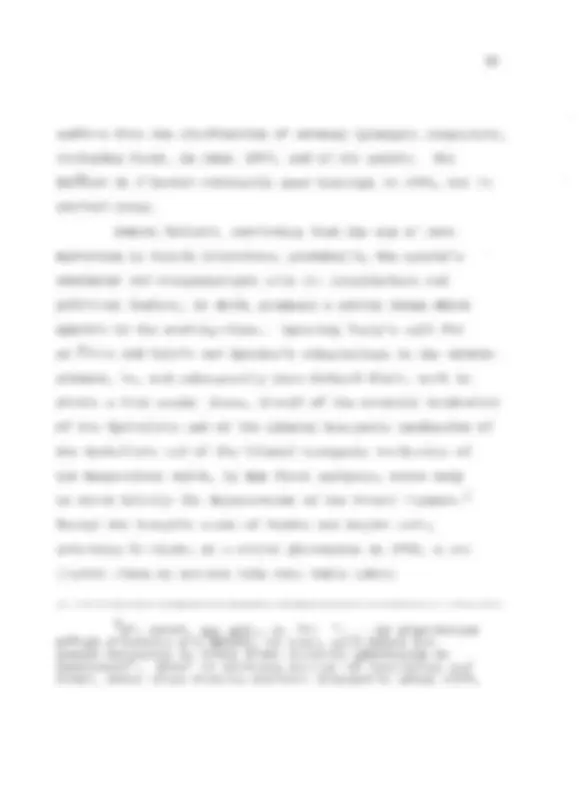
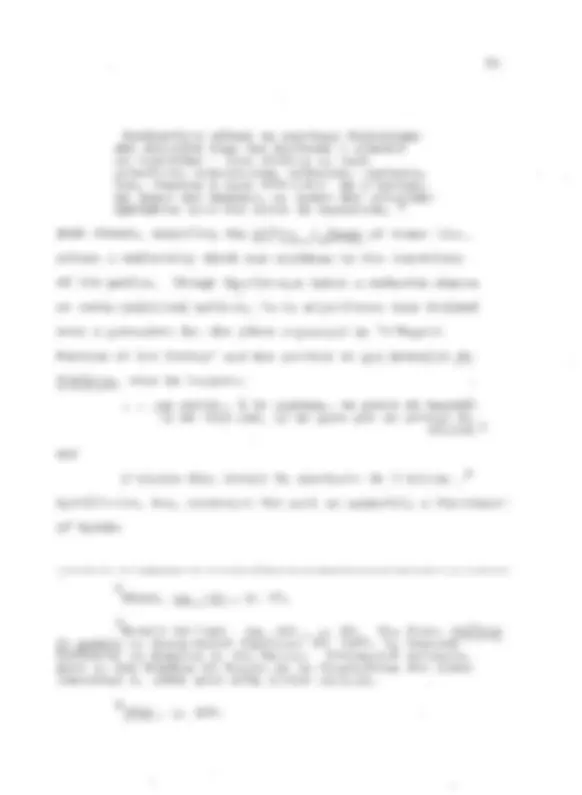
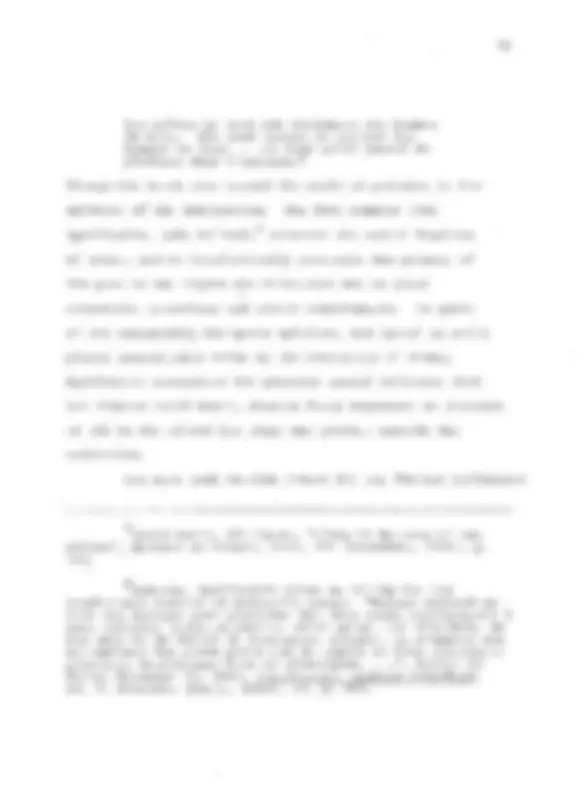
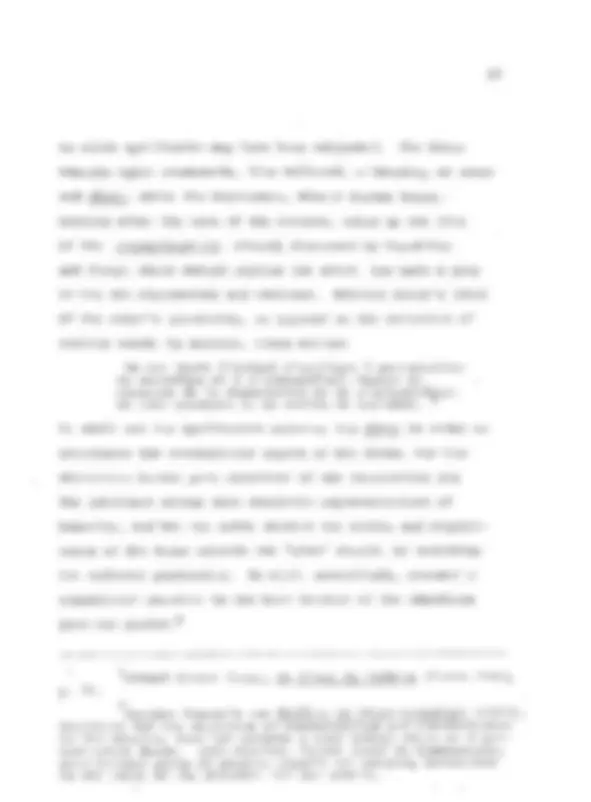
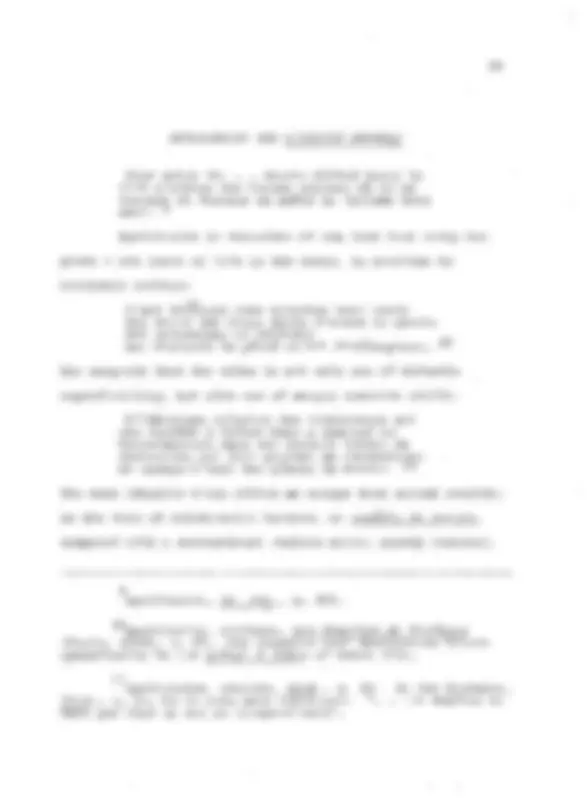
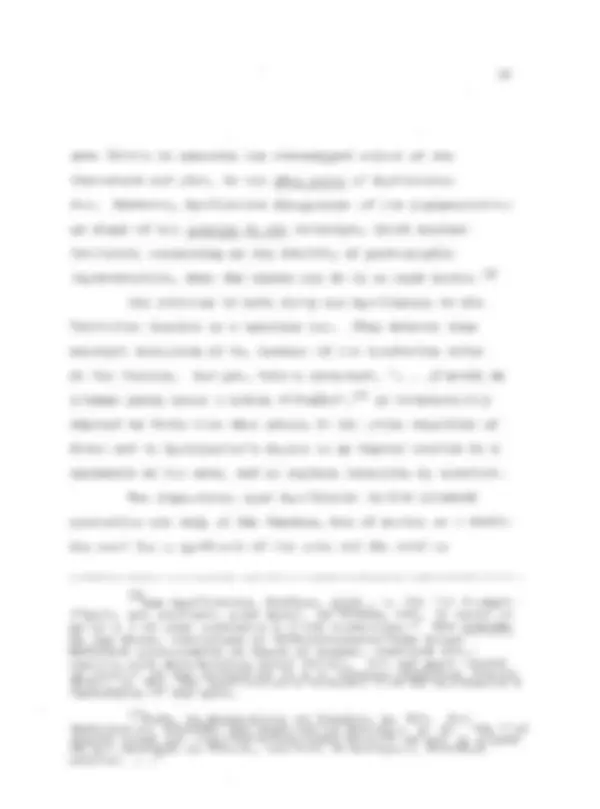
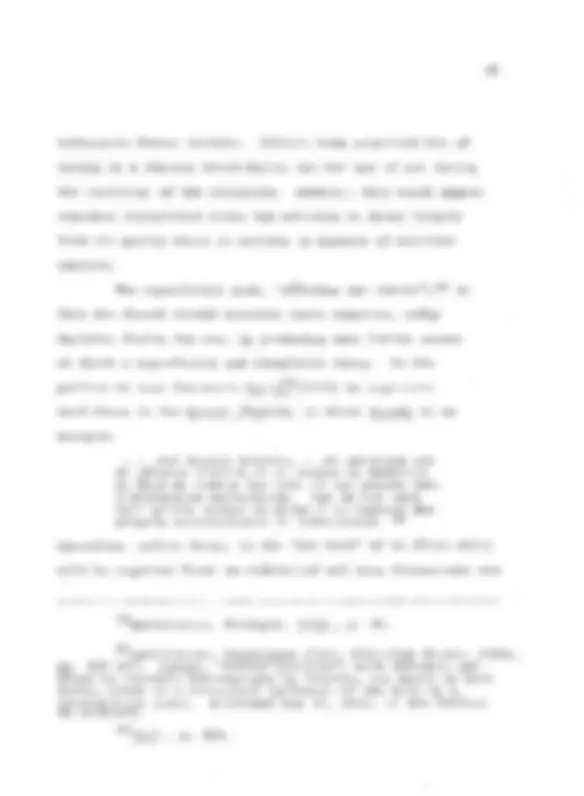
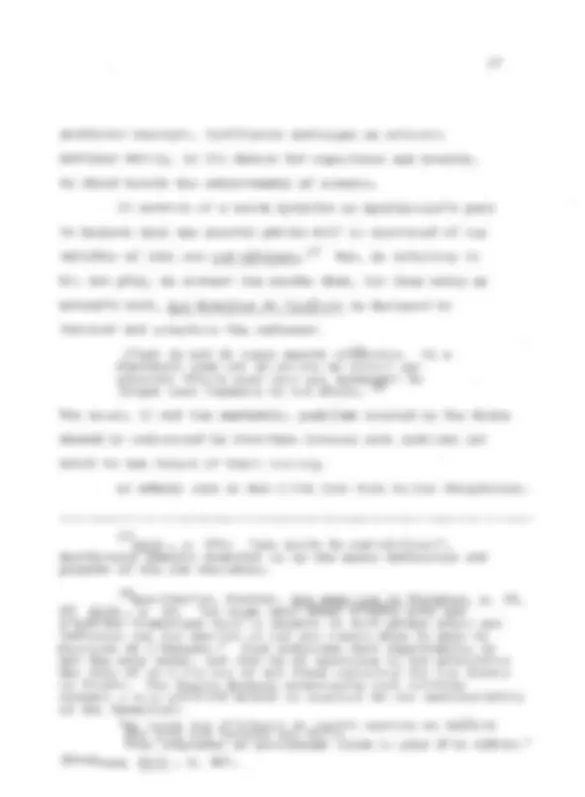
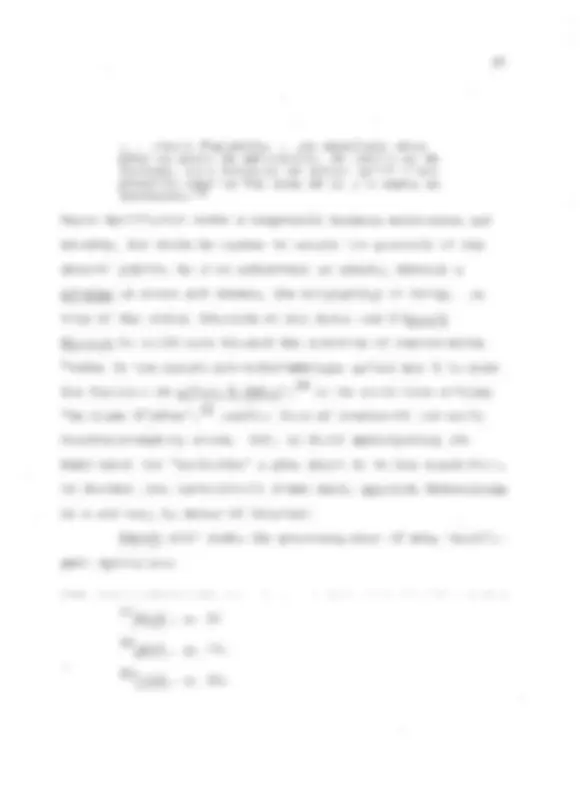
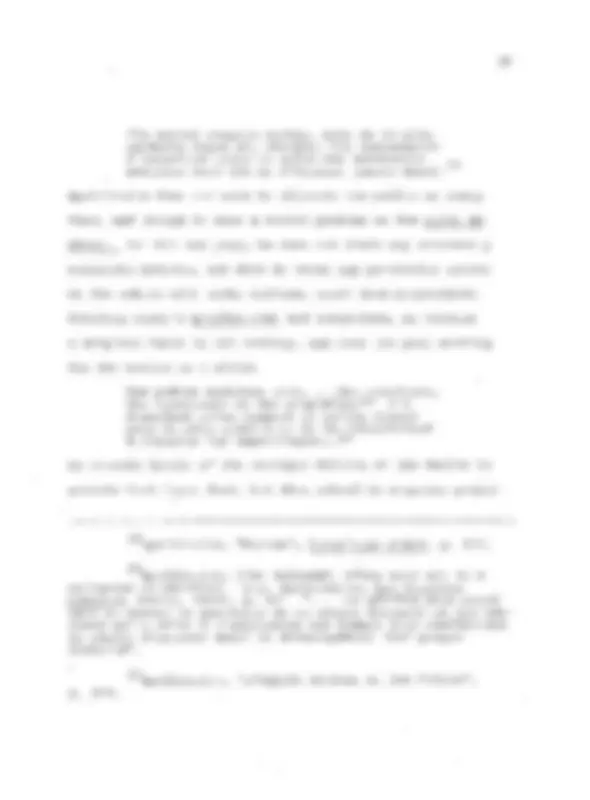
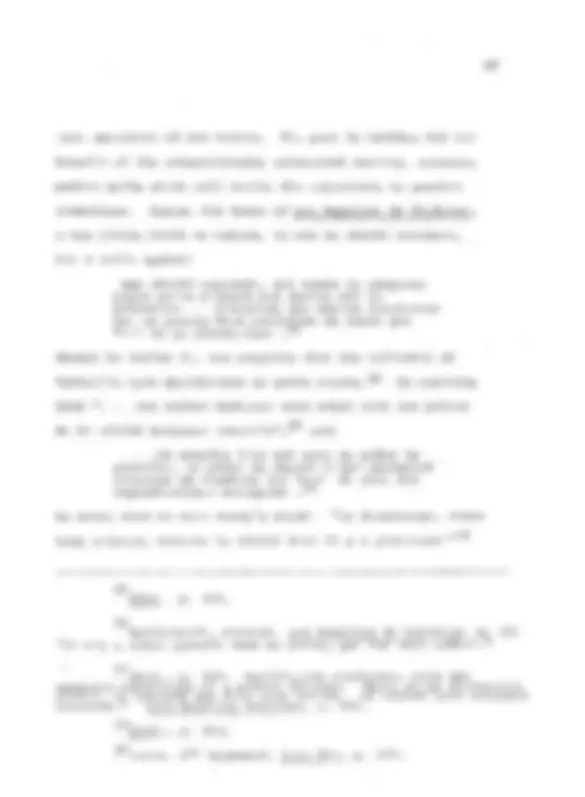
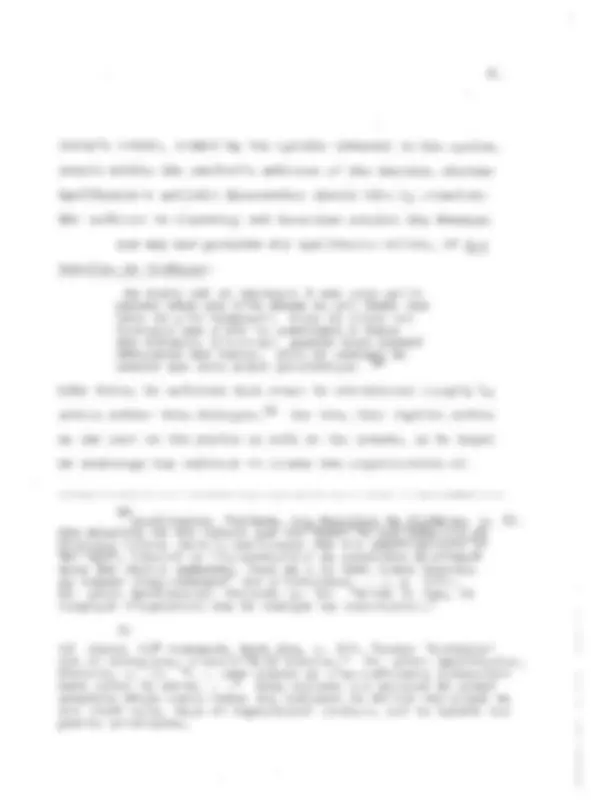
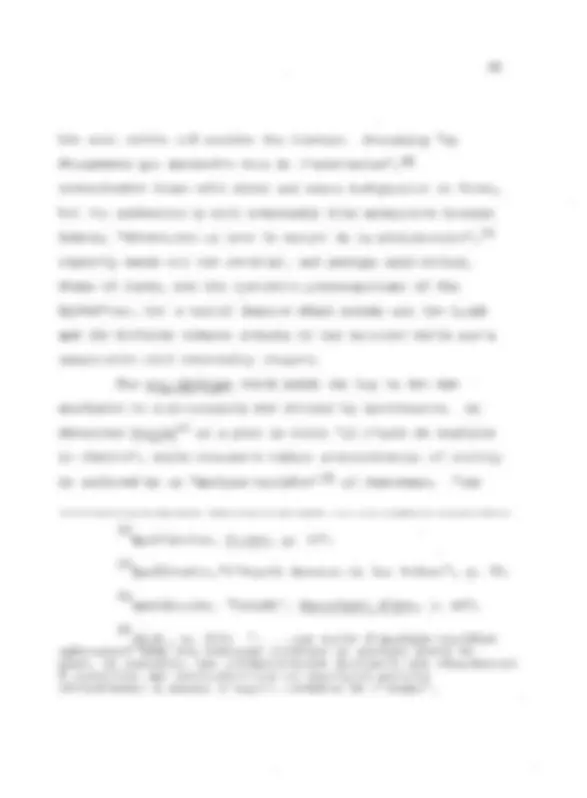
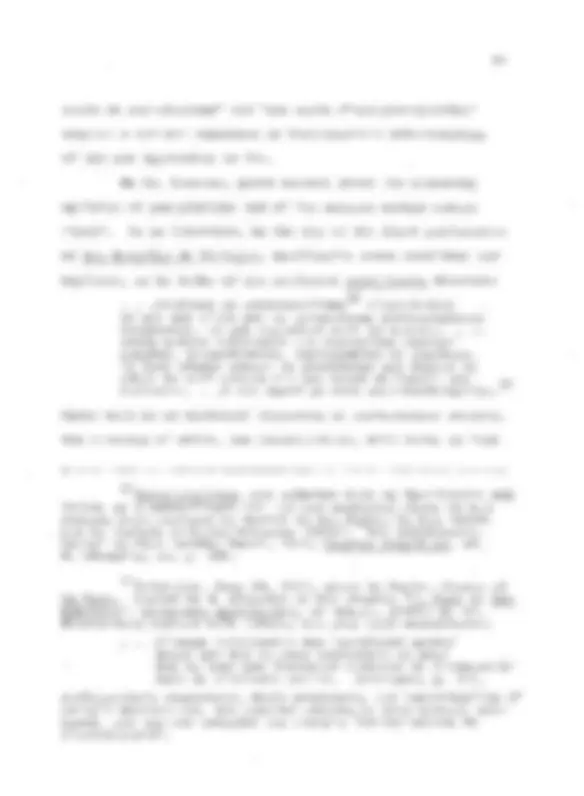
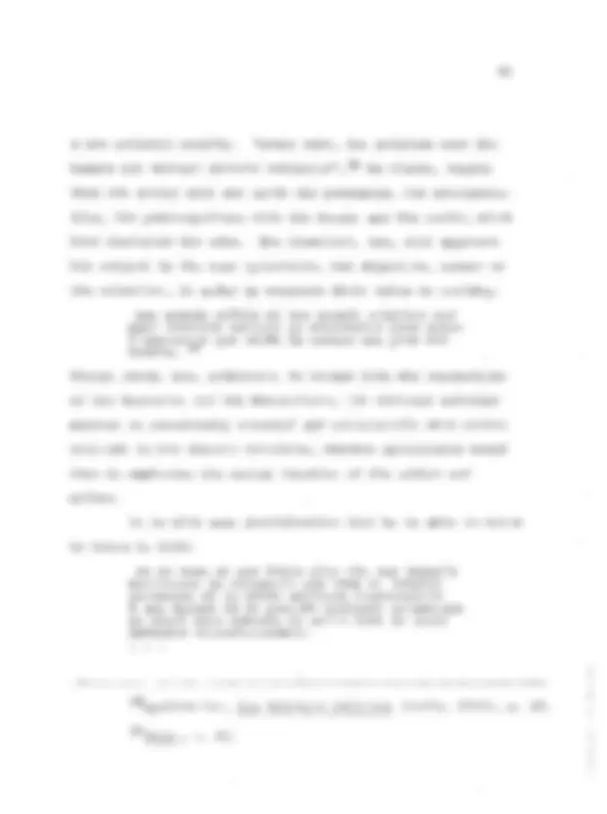
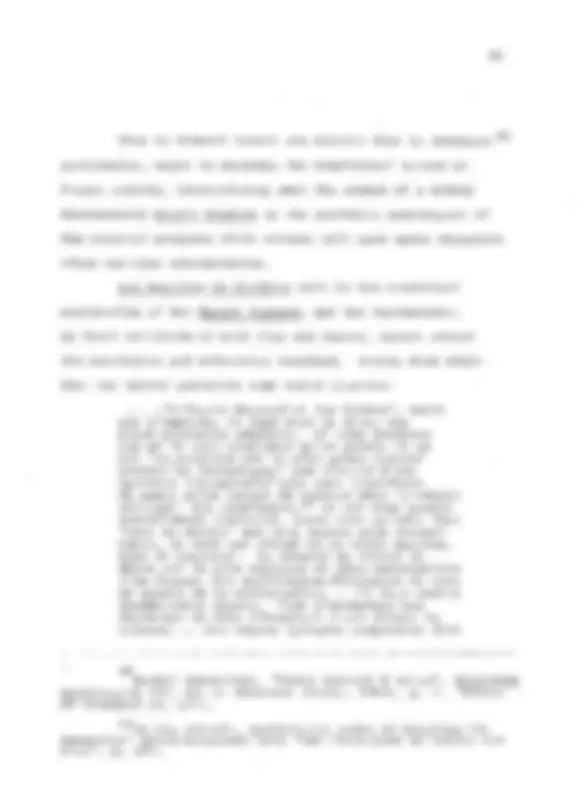
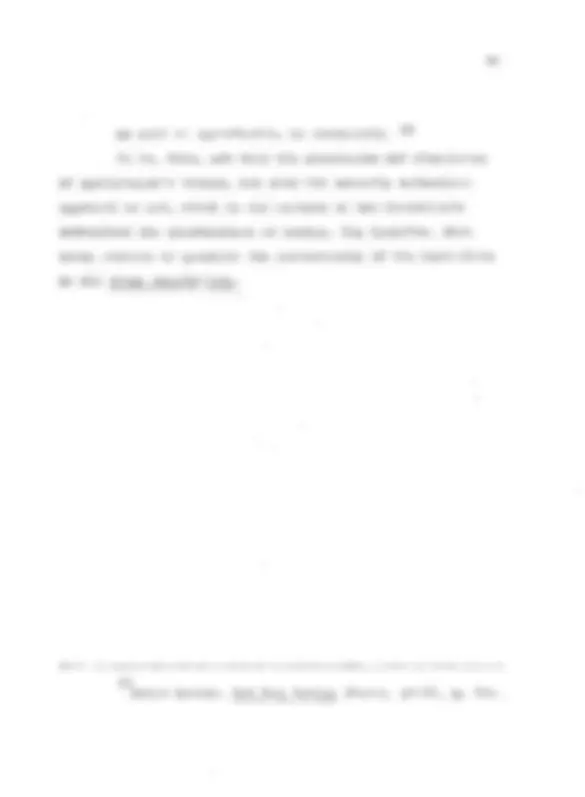
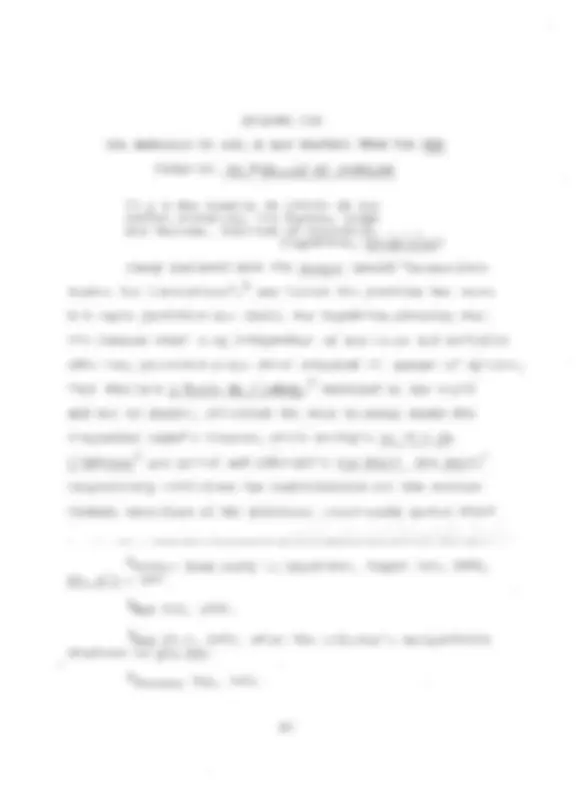
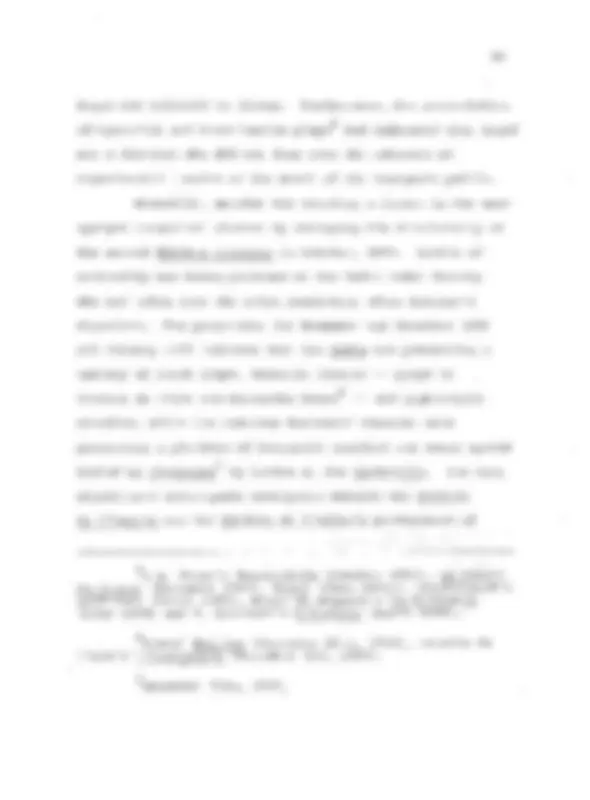
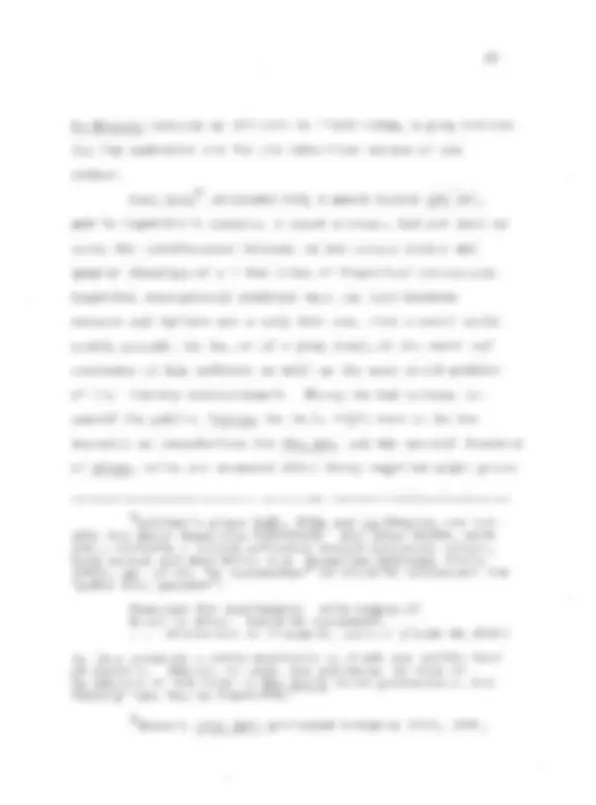
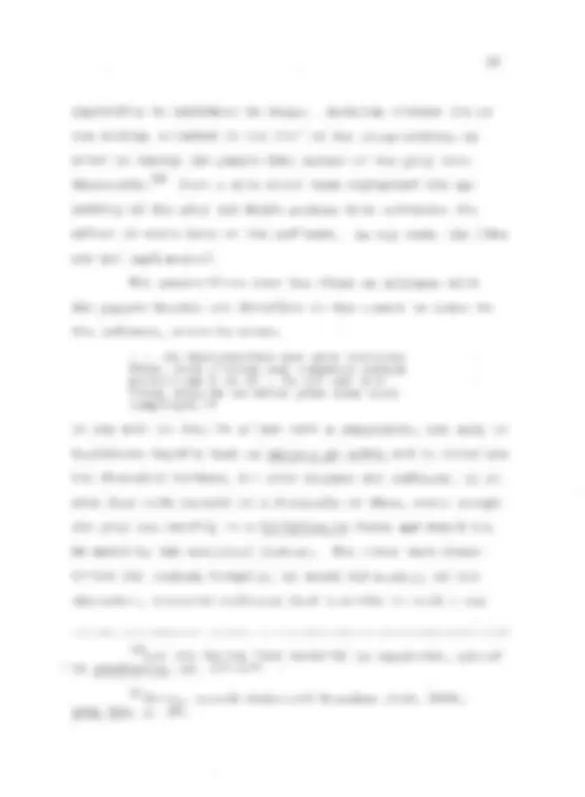
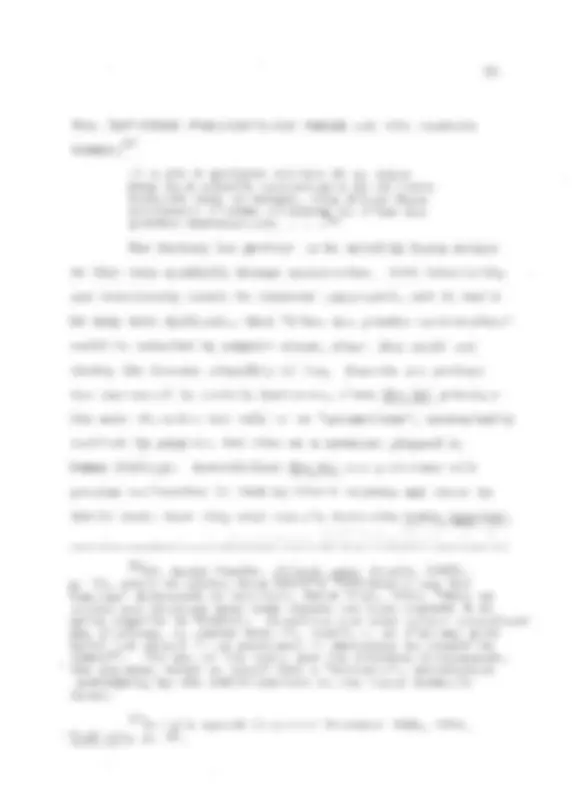
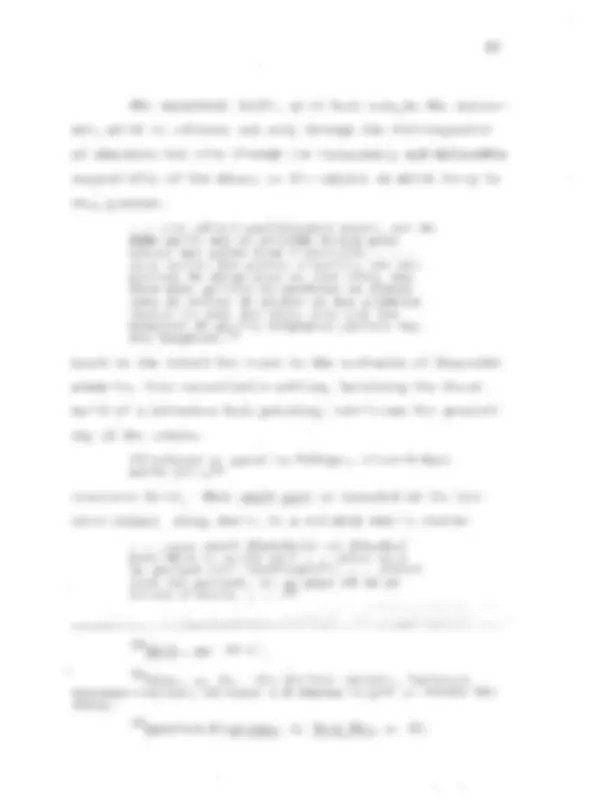
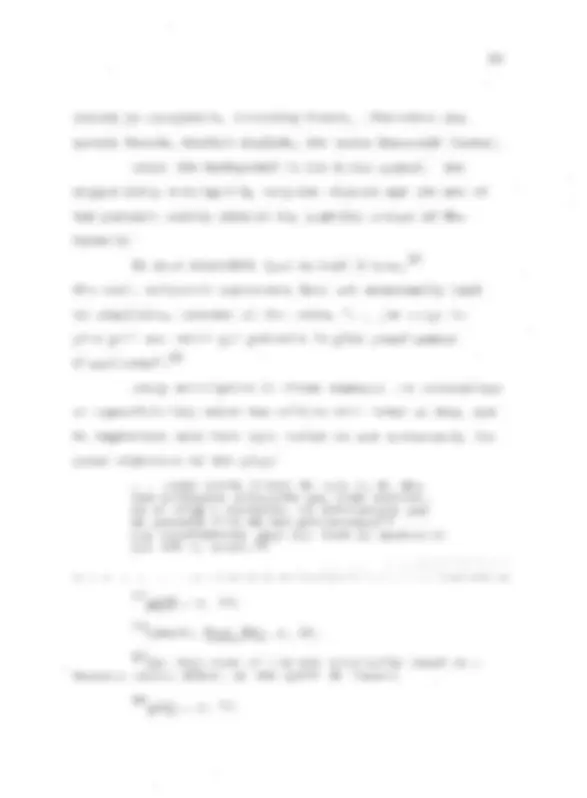
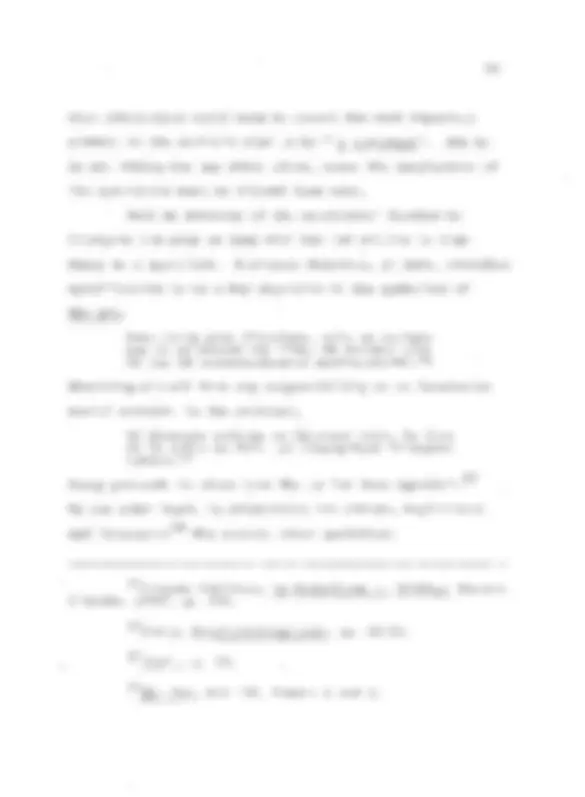
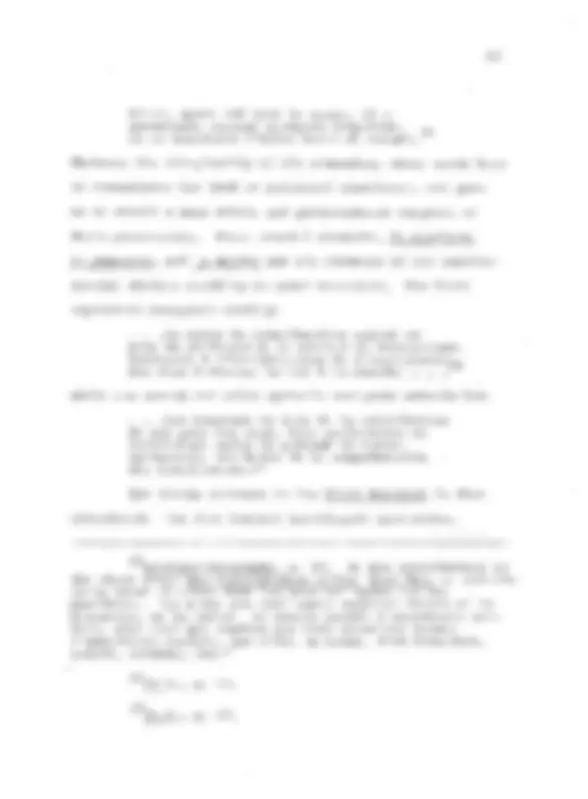
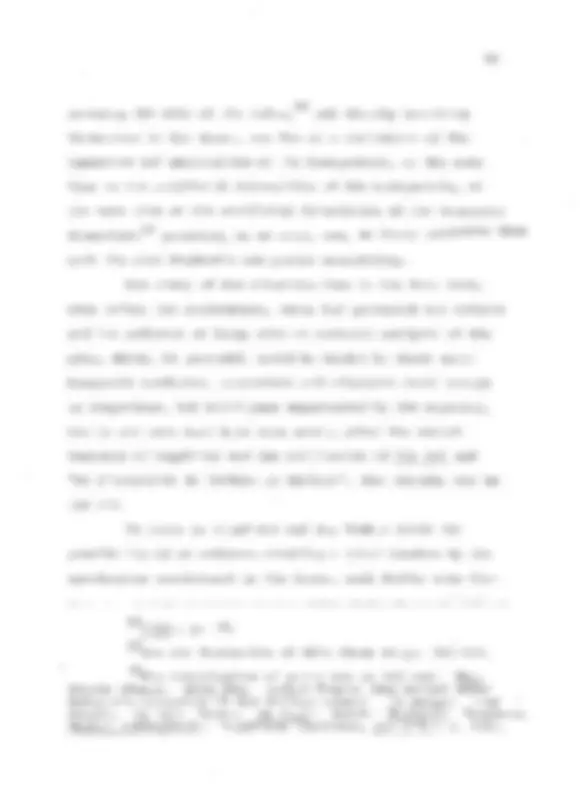
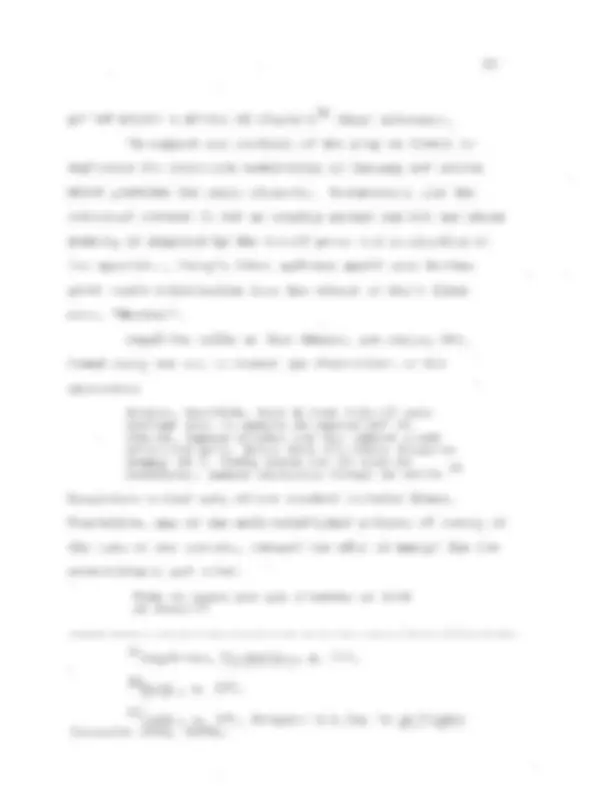
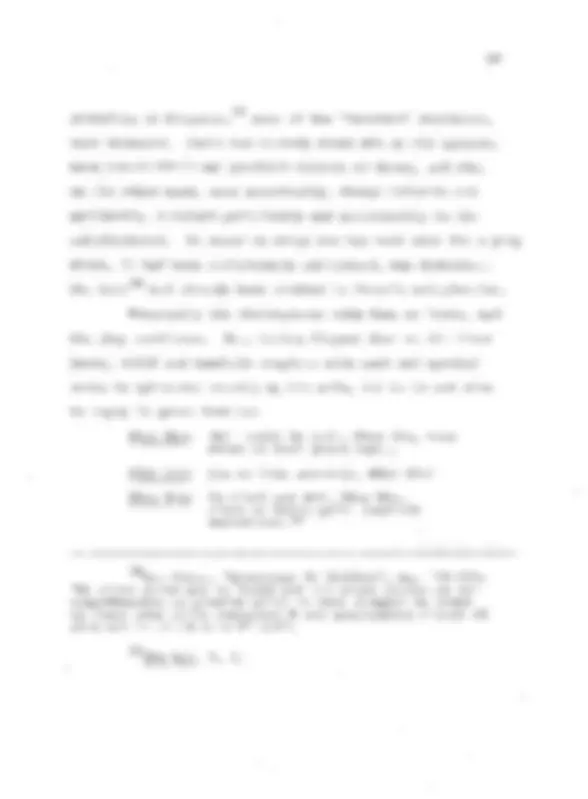
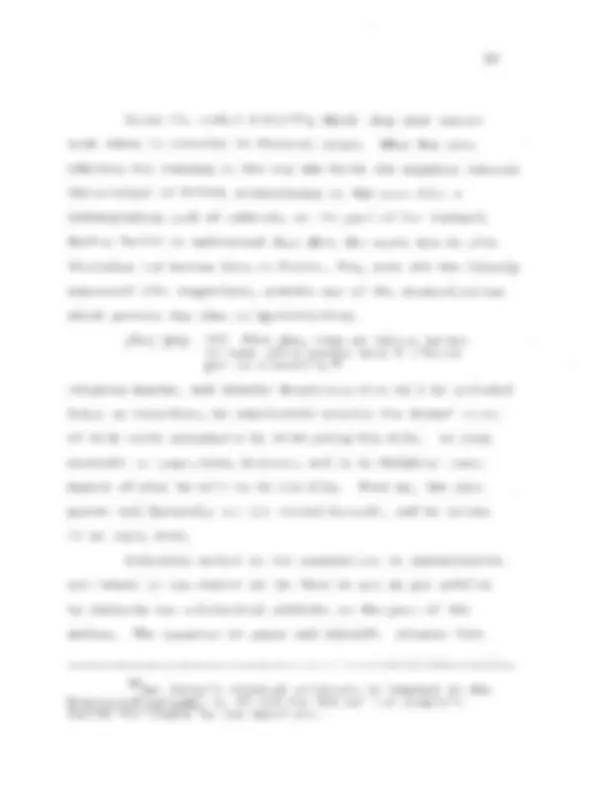
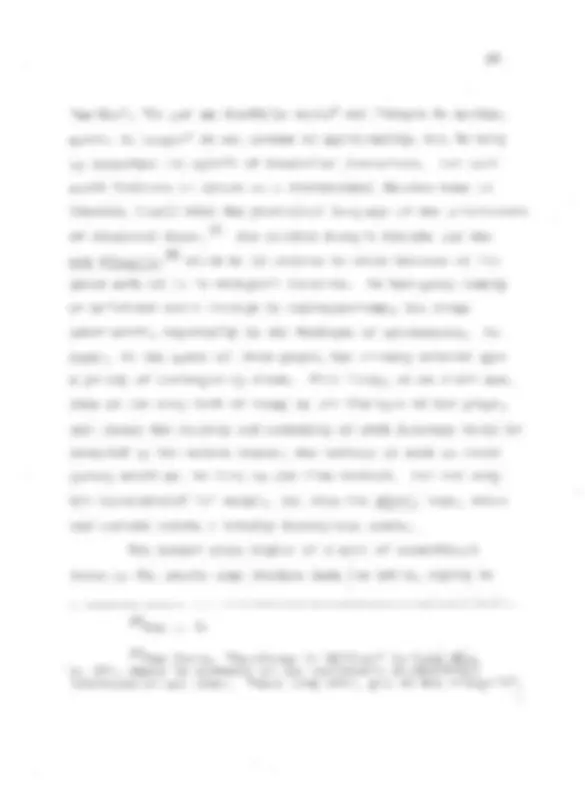
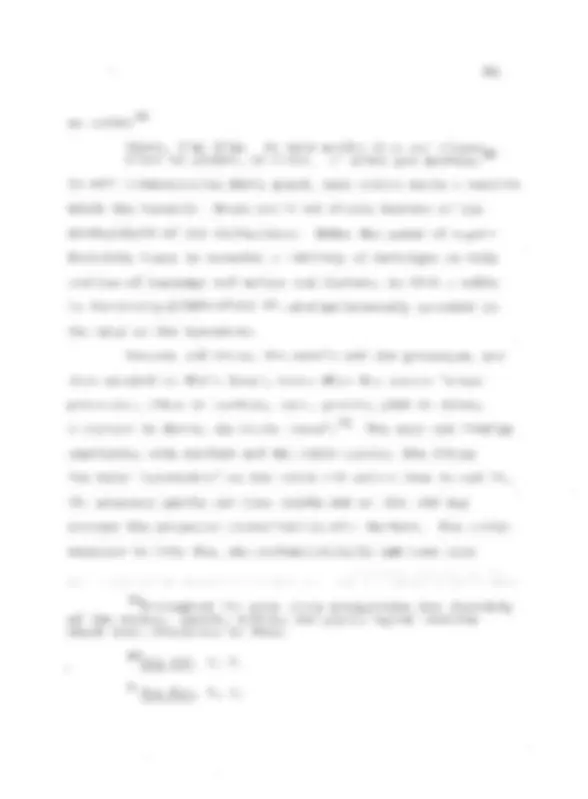
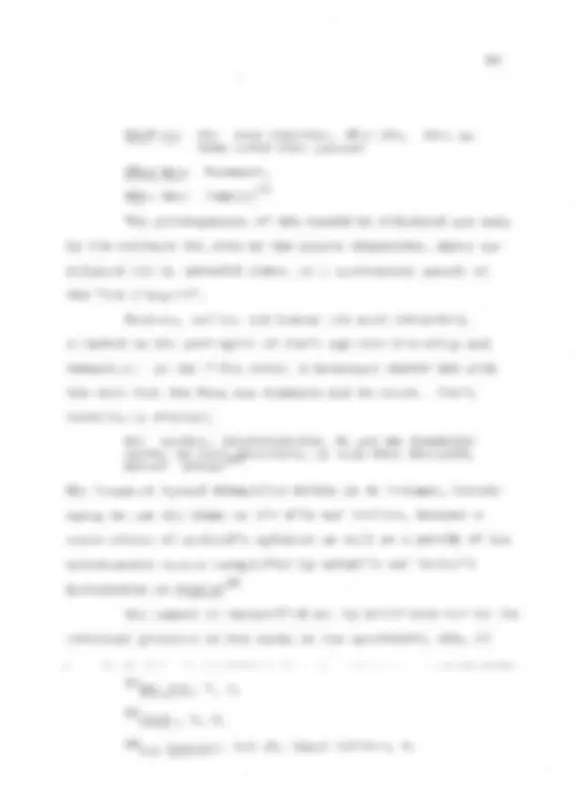
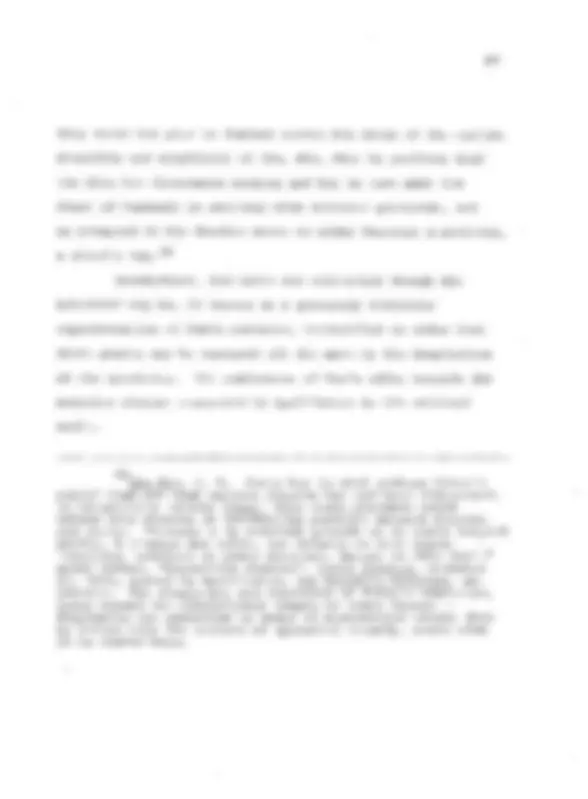
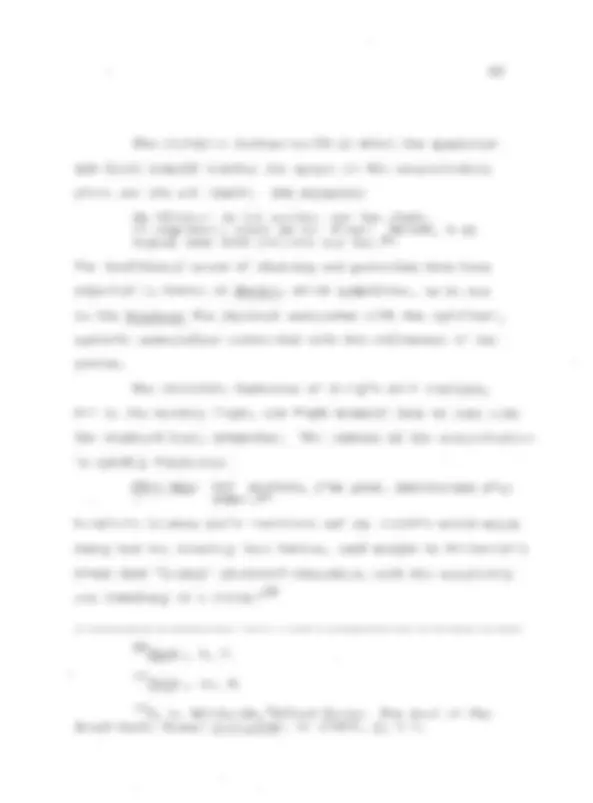
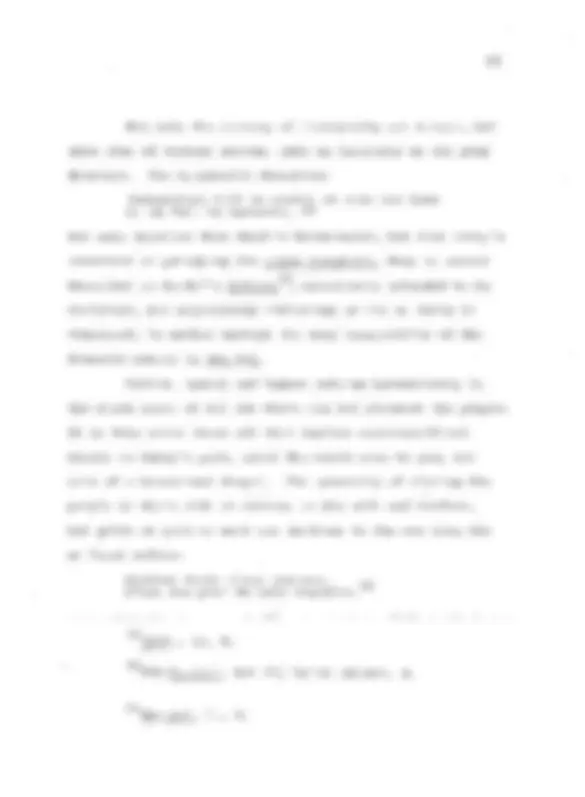
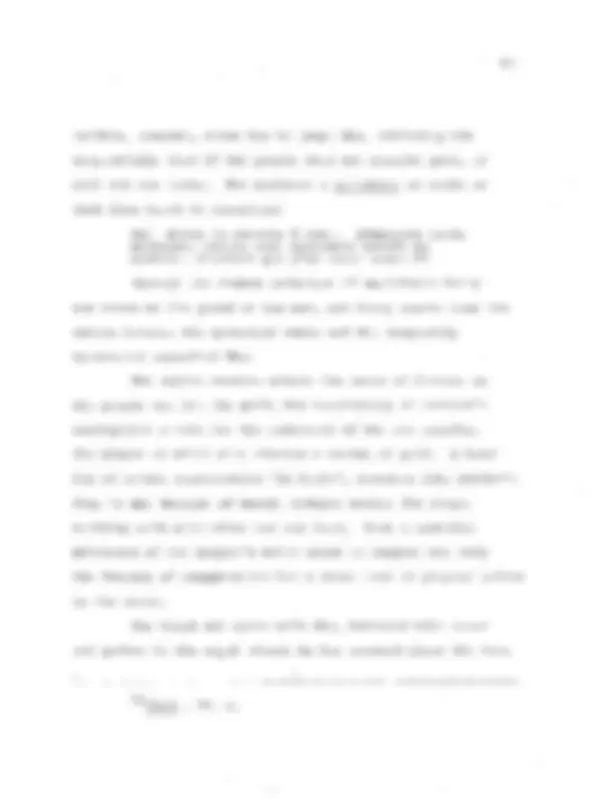
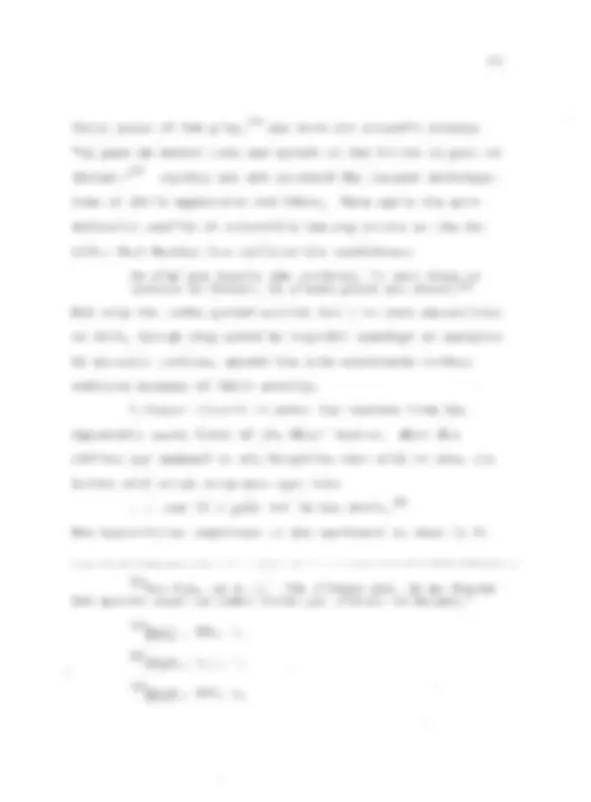
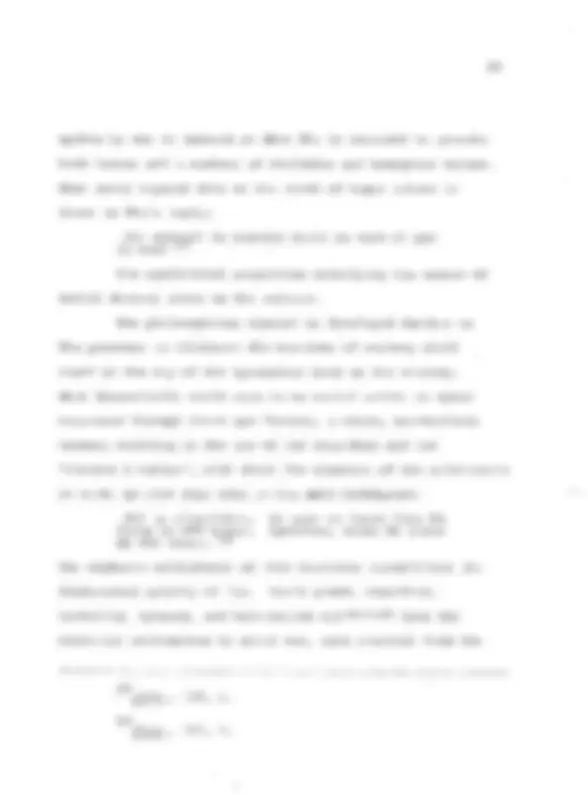
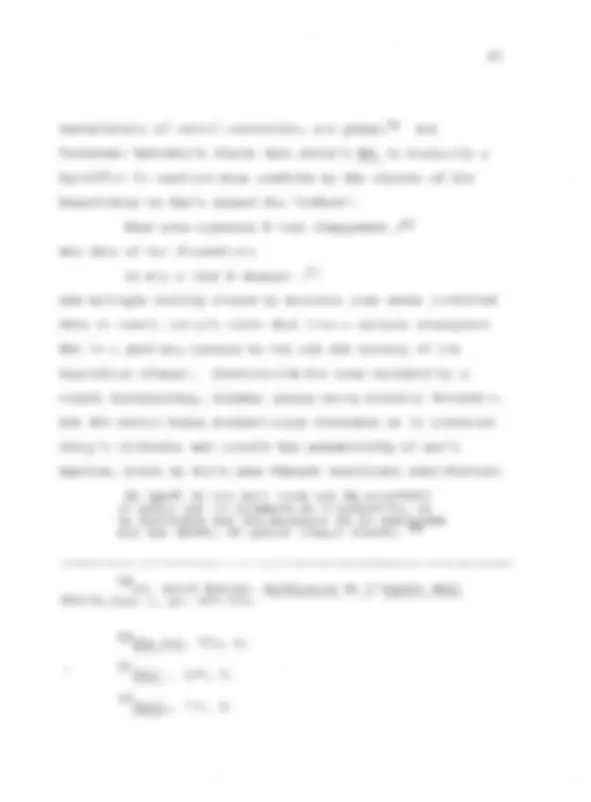
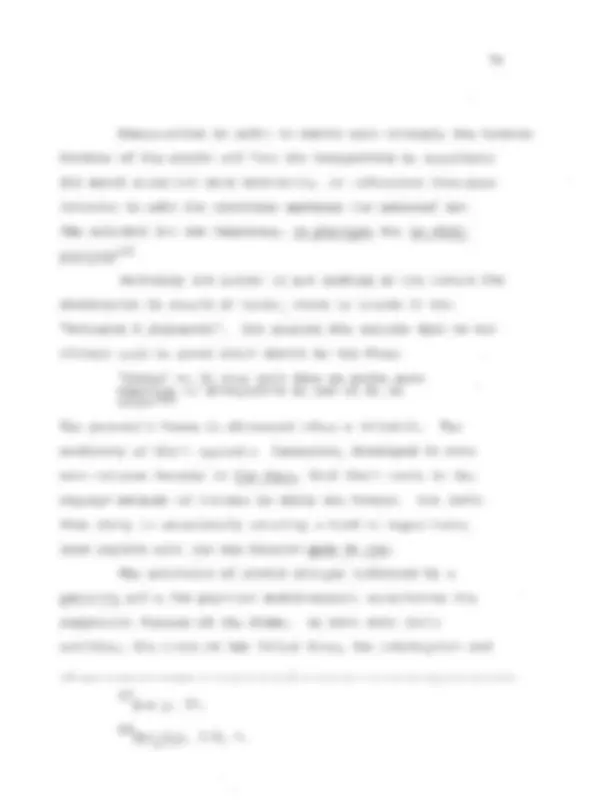
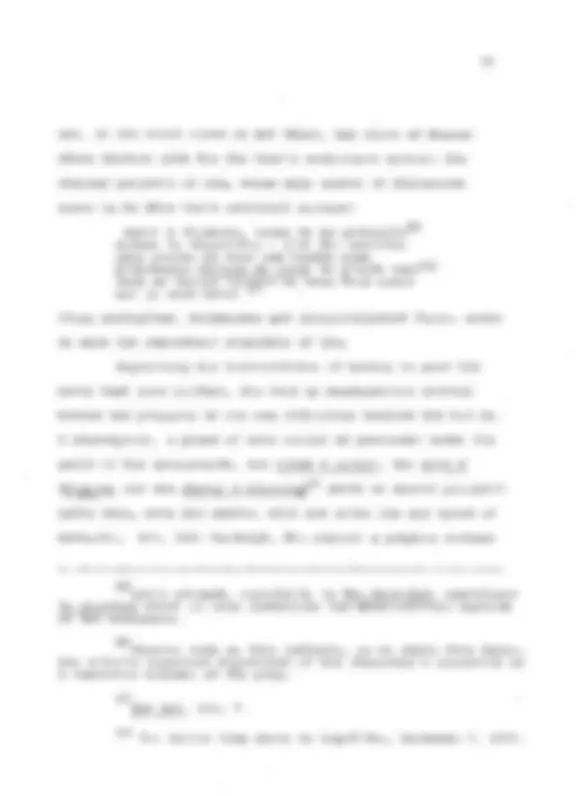
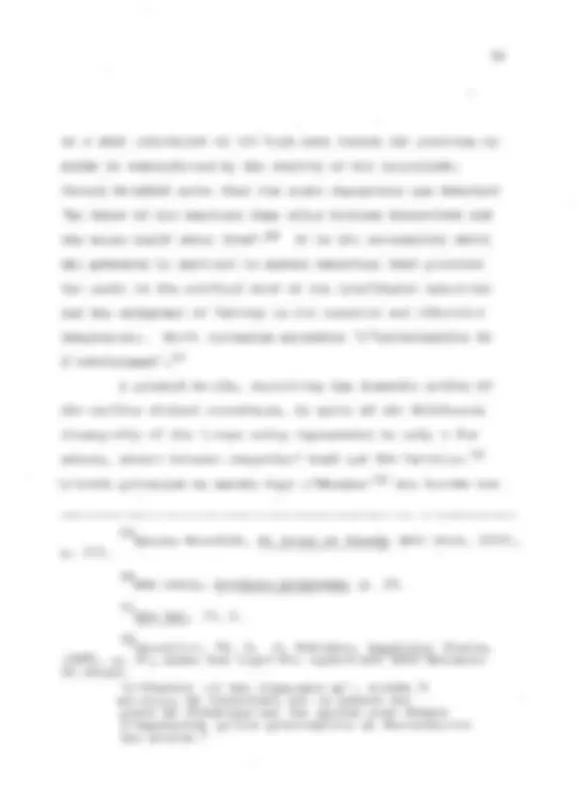
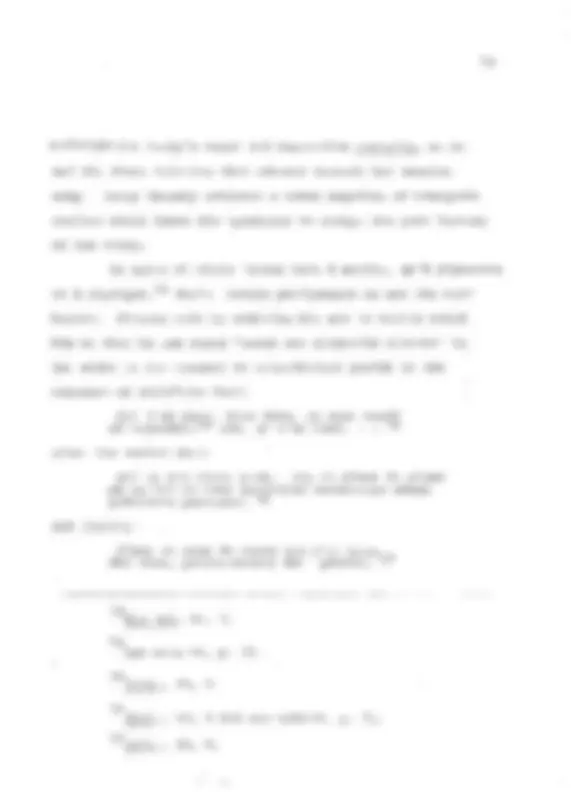
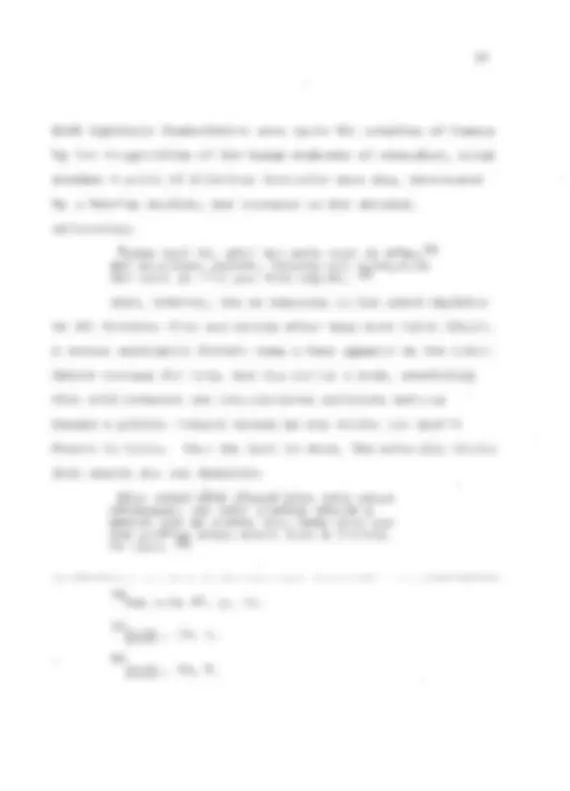
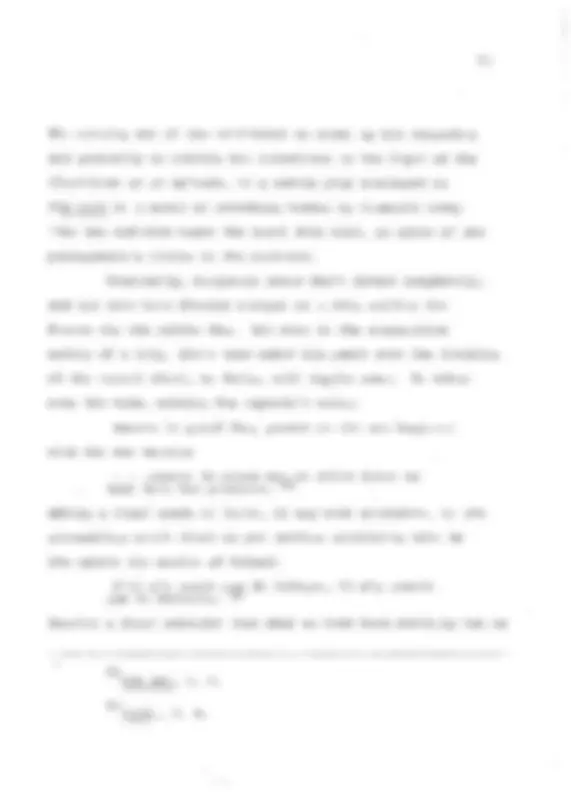
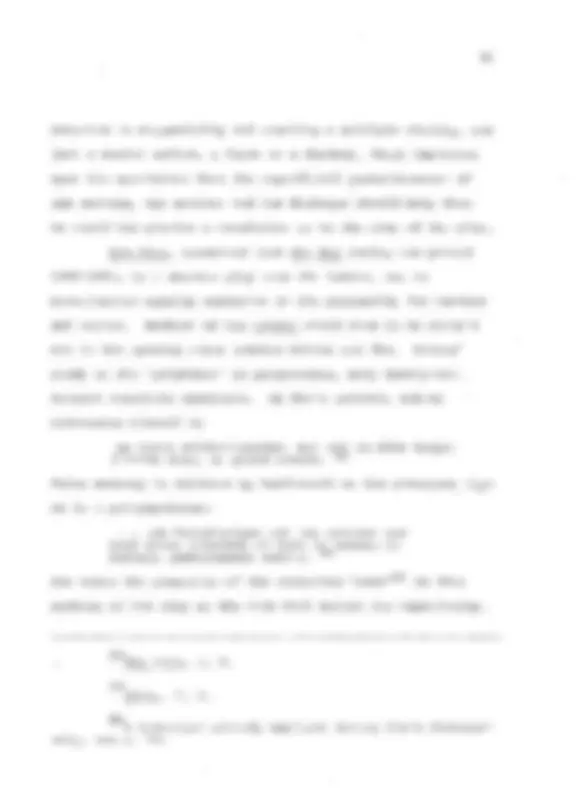
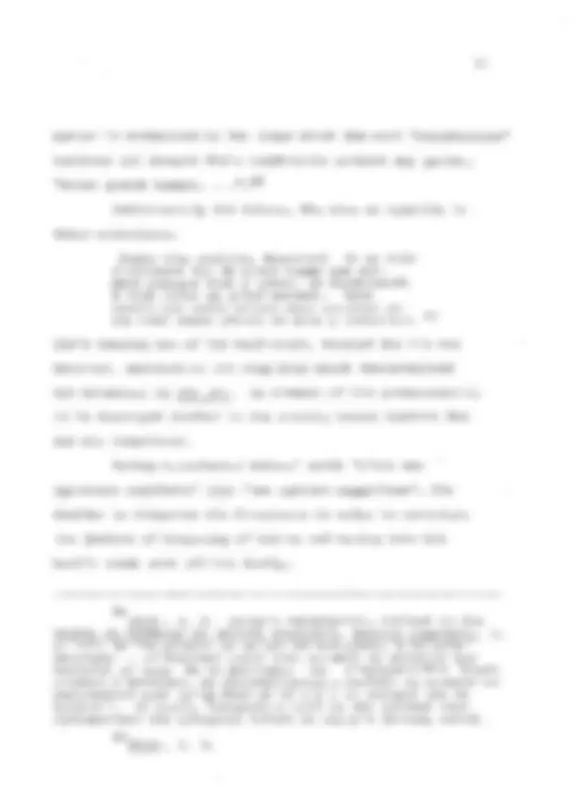
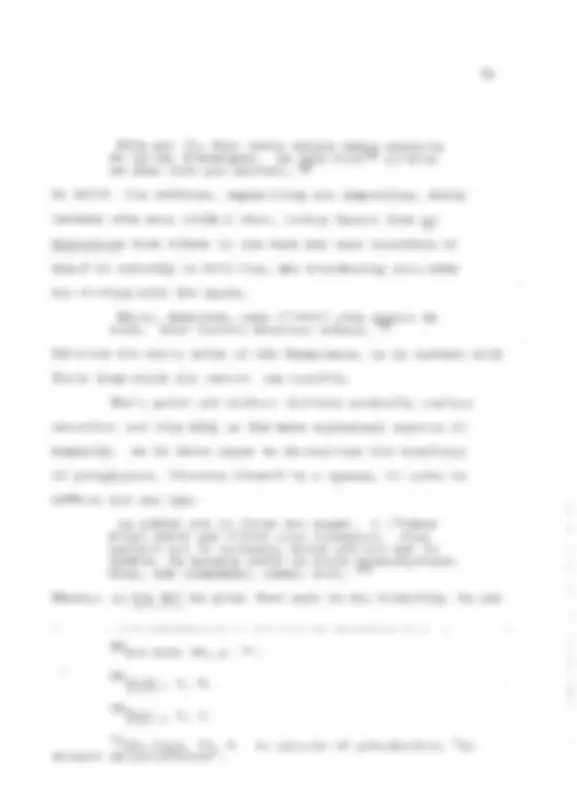
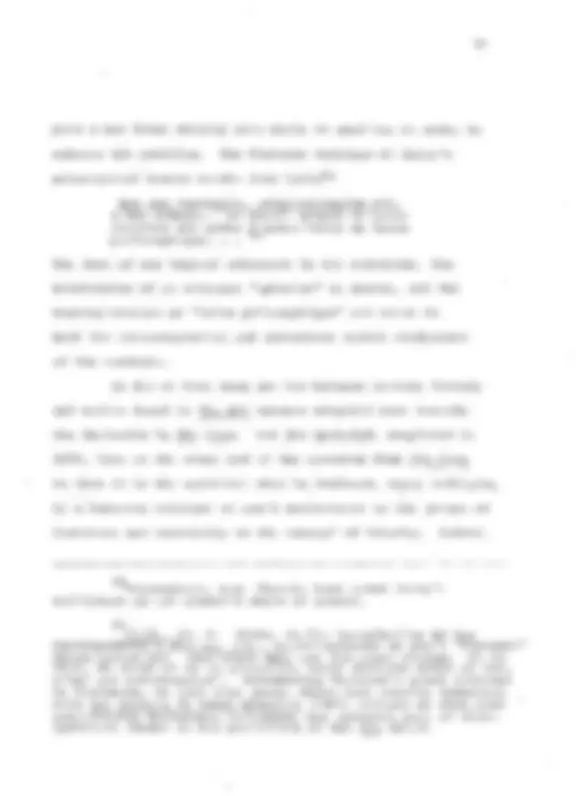
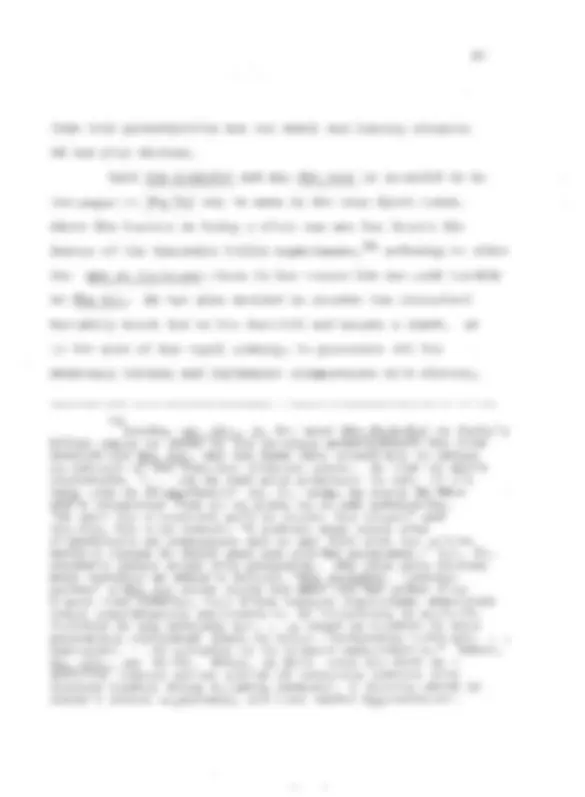
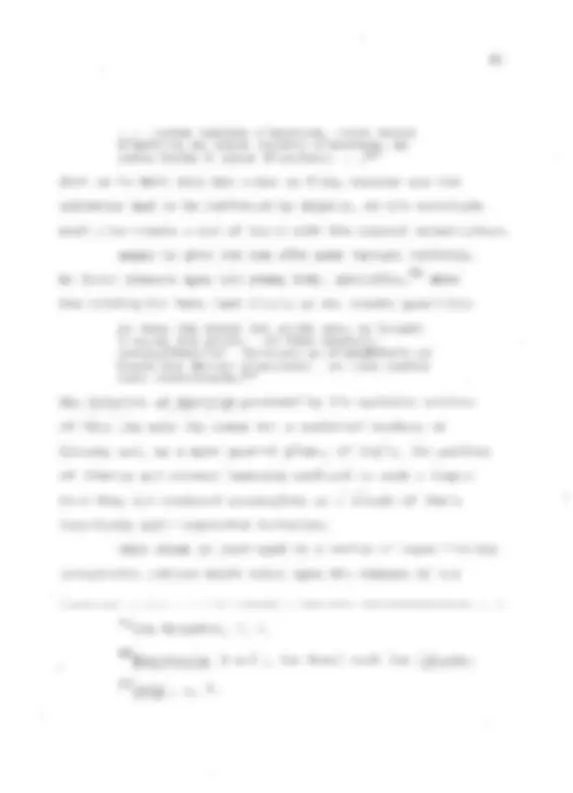
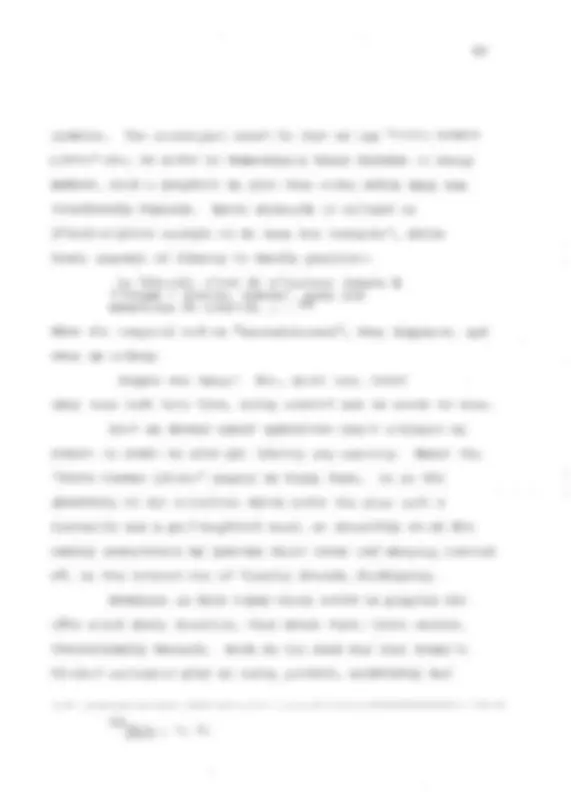
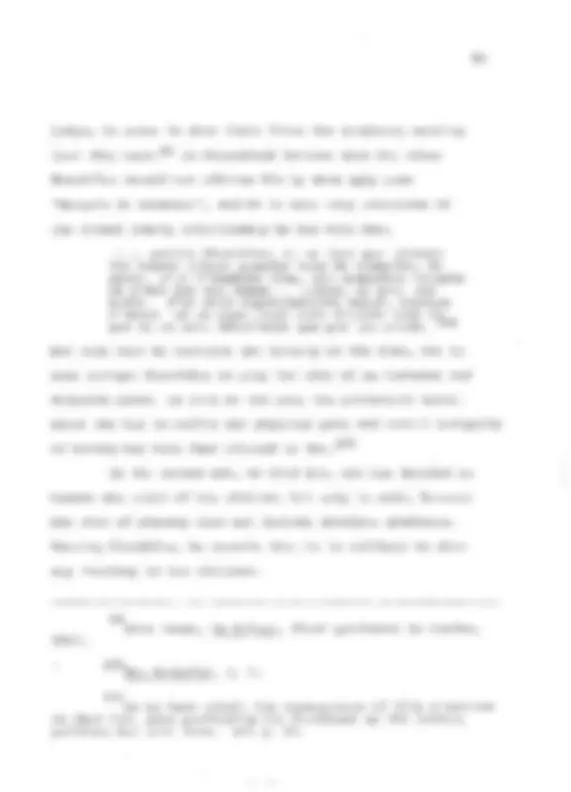
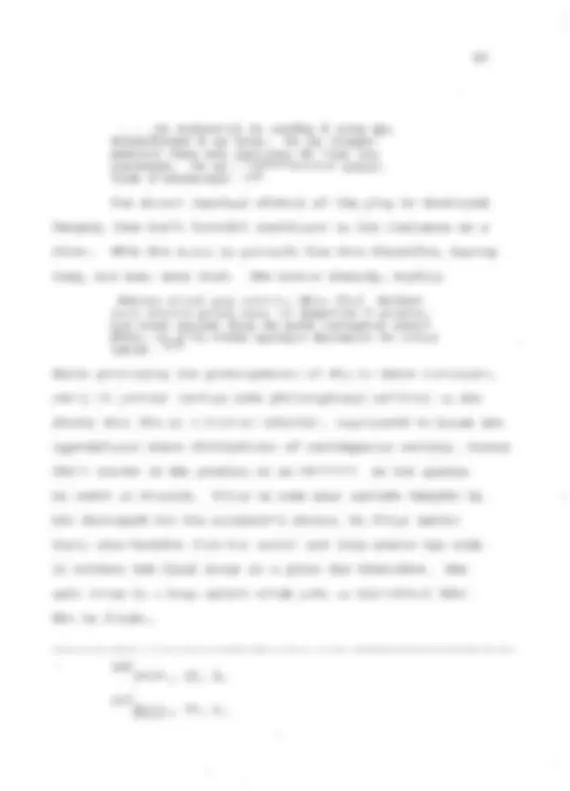
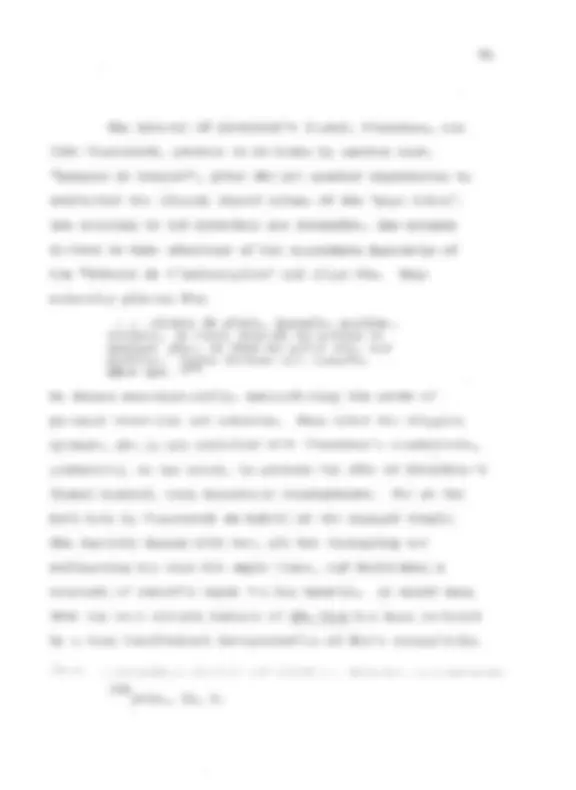
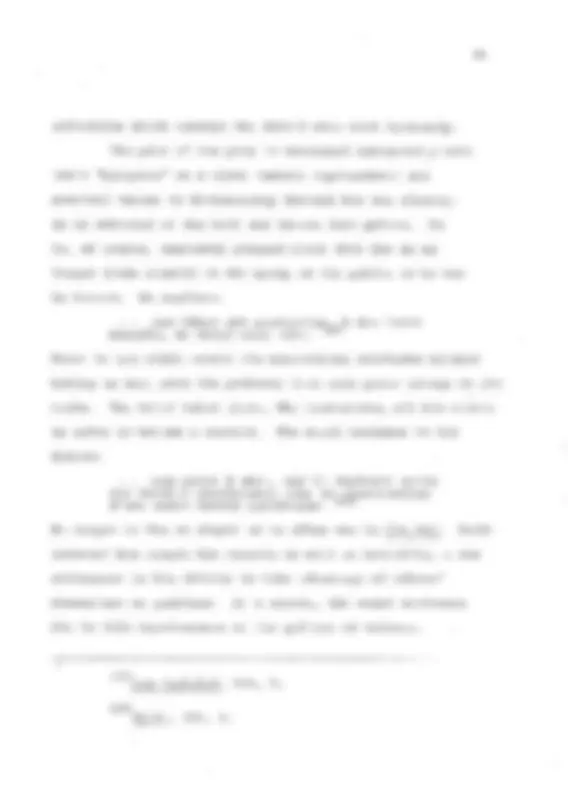
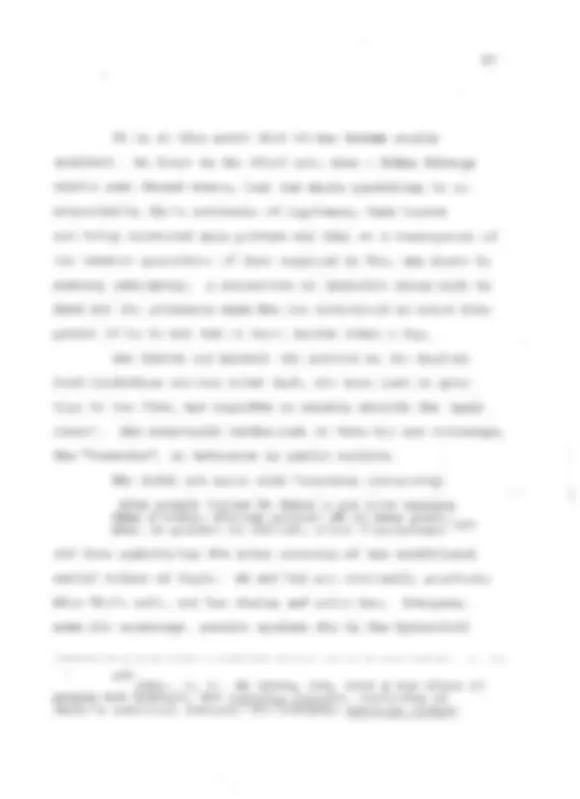
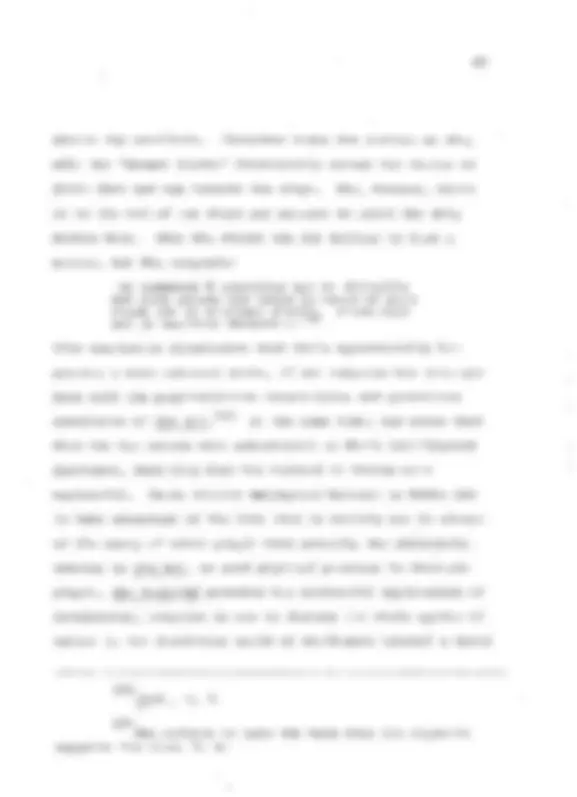
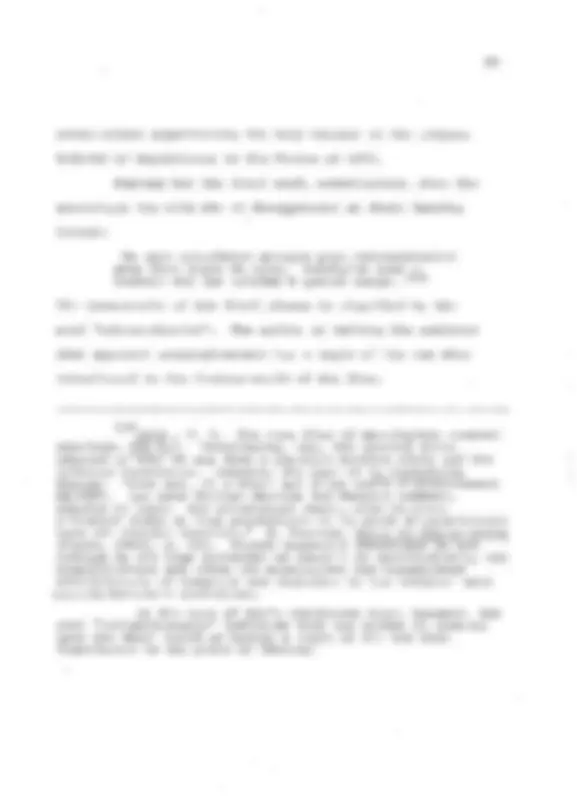
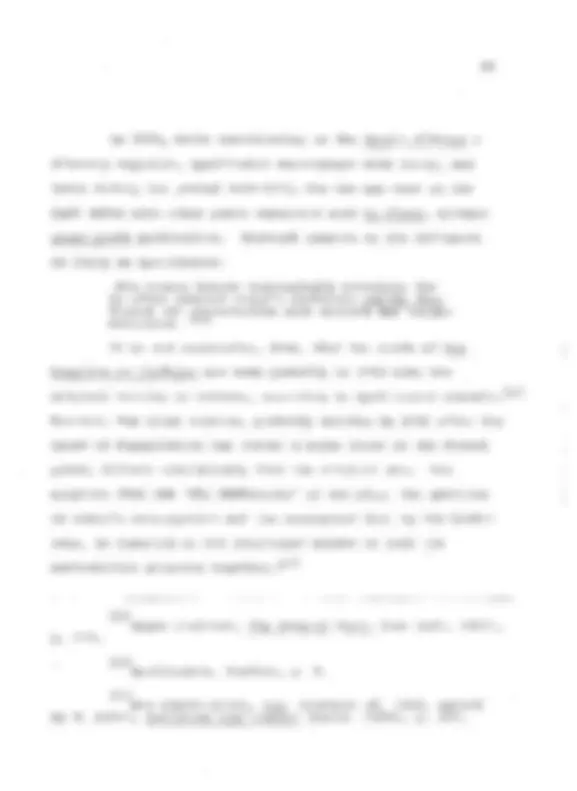
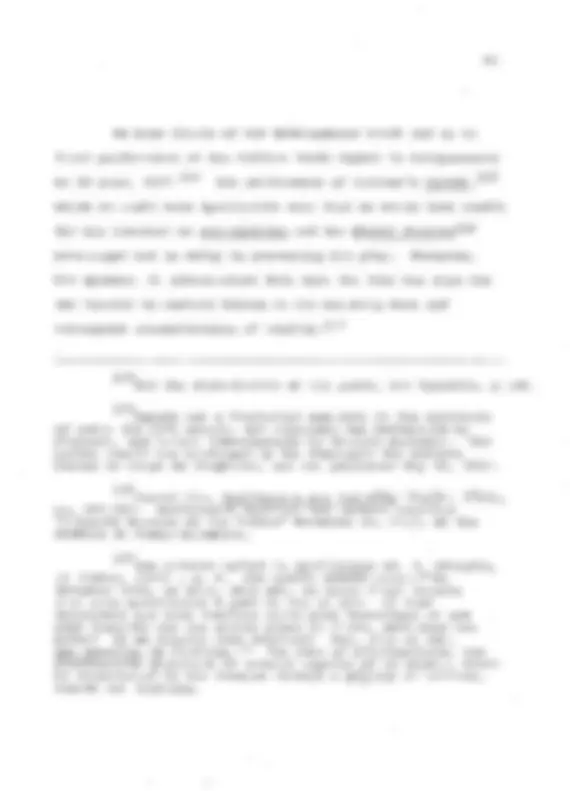


Study with the several resources on Docsity

Earn points by helping other students or get them with a premium plan


Prepare for your exams
Study with the several resources on Docsity

Earn points to download
Earn points by helping other students or get them with a premium plan
Community
Ask the community for help and clear up your study doubts
Discover the best universities in your country according to Docsity users
Free resources
Download our free guides on studying techniques, anxiety management strategies, and thesis advice from Docsity tutors
The works of Alfred Jarry and Guillaume Apollinaire, two influential French playwrights who challenged conventional theatre through their use of the absurd. their critiques of realism and social drama, focusing on their plays 'Ubu Roi' and 'Les Mamelles de Tirésias'. It also touches upon their impact on the development of surrealist theatre.
Typology: Lecture notes
Uploaded on 09/27/2022
1 / 167

This page cannot be seen from the preview
Don't miss anything!





























































































'.rOI'V.hRDS A SUHHEALIS'l' DR1\I1.A.g
by
lyI~::!r"':2~F7 ·t(::~:c ij]J, i \ï·~~:: f~).; ··t.~r f3(?!fyt:e:~'i~~~;L:r 19 --; 0
NA.S'l'ER o:e A.H1~S (1970)
SUPEHVISOH~ Dr. B.S. Poaknell
NUMBER OF' Pli.GES: lX! 158.
(SolimZ'.n in LlaD.=y! s Db~ F.~:I!>.é f III f 8) 0
IWl'HODUC'l' ION
CHl\J?TEH. l
CHA.P'l'ER II
CHAP'I'E f{ III
CHAP'I'E:R. IV
CONCr<iUSION
BIBI,IOGH.l\PHY
JARHY f S VISION OJi' AN ICONOCLAStEIC DR1\MA
APOJ..!Ia~NIUFE 1 S IDEAl, 01i' lA NE~'l SOCIAL DHAI'1A
'.rBE r.1ARHI.AGE 01." t'i..wr.A.SY hND Sl-i.~[,IRE J?ROH THE UBU CYCI,g '1'0 l,ES Hl\Mm:.,r,E[;
'rOWhHDS A SURRI.!:l\I~IS~(, DRl.lJ1A
BEYOND SUHIŒlù,ISH
Page vi
l.
Humour itself, especially in the case of Jarry,
and bath authors endea-l,rour to ally their l:ecol1s-(:i tutioT.l of
we:ce C:tt~ t.he Lycée de H.ennes. It will made clear in the
of U18 play as much as 'che text: itself. Lugné'~Poe l 'I::he direc!tor of: the pla,.:v ill 1896 r clar:Lfi.es tlle iss'l1.e t:ll.US ~ Que Jan::'y ait Otl non )?c':u:-ticipé en chef tl la format.ion ct 1 Ubu Roi p cela 11 1 a aucune impor-"
and action of their pleys indicates
the first tvJO chapteJ';:s. The th.Led cha.pt:er ,,15.11 he devoted
t;,erx'est:re f^! oE Cési}.x··A111:eclu.-:is'i:. p:cesen.b:l Dhu himself as thc,;;
CHAP'rER l JARRY 1 S VISION OF lU! ICONOCI,liS1^1 IC DRAMA
Il n'y a pas d'absolu; jamais! dans théâtre, aucun c'est-qu'une art! S'il ymode a unlia créé hier et qu'une mode l'emportera demain.
In an article written, saon after the scandalous first. performance of ~~ Ro:i:JAlfrec1 Jarry compares his theatre with that of his predecessors: Le temps es·t nécessaire parce que ceux qui sont plus agés que nous -- et que nous respectons ~ ce titre -- ont vécu parmi certaines oeuvres qui ont eu pour eux le charme des objets usuels, et
ces oeuvres, et garantie ·devant aller jusqu'en l'an mil huit cent quatre vingt.. et tant. Nous ne les pousserons pas de l'épaule; n'étant plus au XVIIe si~cle; nous attendrons que leur âme
simulacres qui entouraient leur vie, se soit arrêœe-. -..1 -. Jarry's iconoclasm has, he hopes, rung the death toll for the bourgeois theatre that prevailed during thenineteenth cent.ury. His ironical rnind notes not. only t:he inmünence of a theatrical revolution but also that the moribund drama of the Parisian bOlllevards corresponded, and perhaps pro-
lAlfred Jarry 1 IlQuest.i'ons de Théâ·tI"('~II, La R8vue .!?.:}_anc.~~ (January Is·tt 1897) in .·t_yb~ (Paris J~6·2l-~--·p. 155.
l
longed, a certain attitude ta life. The varions kinds of Romantic drama do indeed reflect aspects of French society, though in an extremely stylised manner. 'l'he predecessors at'tacked by J'arry develop the If (^) rea_lsm l' (^) If (^) 1 ln ' (^) th" elr (^) d (^) eplc~~on',L',' (^) soclecy,'.L. th',a~ FI (^) ugo aeman~ ds
plementation of monologues and asides 1 in order t,C) reveai the psychology of the cLàracters, and the abolition of the traditionai unities of place and time, he nevertheless con- tributes to the s1..J.bsequen Jc artificialit:y of bourgeois drama
for the sake of dramatic potency, main characters boing taken inevi tably from t.he middle and upper classes so that. t:he epic arnbiance of Classical tragedy could be maint,ained.
tha't only those elemen'ts agreeable ta his bourgeois audience remain. Eugène Scribe 1 wri ting beh/een 1815 and 1860 r leads the way in the pro,C'!:ice of Hugo 1 s theories f his technically
rarely gratuitous peripeteias, and often replete with Iight
(Mont-real 1957) , p. 58.
(comedy and social drama) evince a prop§lnsity- for the "mot_ d'espritl! which Jarry later cri-U_cises. 4 Yet ,,qhat Jarry is mos-c: acutely a\vare of in con'" temporary Romantic drama is a collusion between ,,,,ri ter and public: Il Y a deux choses qu'il siérait -- si l'on voulait descendre jusqu'au public -- de lui donner, et qu'on lui donne: des personnages
concerned about the lack of intellectual vitality on the part of the audience. Zola, whi1e denying tha-t esgapism is the main reason for such degeneracy is convinced that the spectator does not go ta the theatre for intellectual stimulation:
5J-arry f "De l'inutili-té du Théâtre au ThéâtTe", Mercure de France LXXXI (Septernber 1896) 1 pp" 467--468. 6lve are reInetant_ ta at-t:empt any precise defill_iJcion of Realism, the nineteenth-'centlJ_l-:-Y él_spec-ts of w11ich are -Crea t:.ed in deJcai l by René Dumesnil in his book Le R§~Ü:.2:
c'est une fatigue que d'aller à la Comédie Française pour un homme qui a bien dîné; il faut qu'il comprenne, grosse besogne. 7 He goes from an evening 1 s entertainmen·t, a diversion from daily routine, for wit and dramatic intrigue, but also, and perhaps more significantly:
d'optique, qui ne sont que la caricature des XVIIe et XVIIIe si~cles, la bourgeoisie parvenue ~ la fin du XIXe si~cle tente d'imiter pour elle- mêmedans lale splendeurréalisme'le des plus fêt.es banal. de cour 8 et se complaît The bourgeoisie, conscious of its powerful material rôle in
society, is seeking to identify itself with the former glories of the aristocracy. 'l'o ·the modern reac1er: i ts drama often seems insipid, but the Parisian public is loing not for profound polit.ical! social or aes,theJcic lei tmotifs but a theatrical atmosphere which wou1d reassure it that the s'tabi1i ty of the repub1ican sys·tem, solidified since 1830 l3UcE -baE11y s-haken -by -Hte -€OntTItUl1!O; Df -1f.fl{] f -is 'being ma~i:nt:aineâ 0 It is in the most. direct of the li,terary Arts tha't i,t cou1d find such reassurance in a theatre which presents the bourgeois and his ideals in a sympctthe·tic light. In Ub.::oi, Jarry is in'tent on mocking not, only the theatre of the day but a1so the social values which that ----,--"-~--------,-~--,--------.-----..--,-,----.--~,--.-.--..-- XI (Paris^7 Emile1968),^ Zola p. f^ 33f:r:Le^ ..Nat.ura1:i.sme ·--·----------------~----·-------·-------------~--^ au^ 'J?héât.re^^1 Oeuvres^ Complètes^ r
1914 (Paris^ 8Denis 1968)^ Bab1e't f p. f^ 66~----~------------·-·---'-------·---~------La^ ]\1ü~e^ e.n^ Scen,e^ conh~mporaine^ f^18 87'~
theatre~
"(1886'-87)'Oeuvres---------~-~:--~- Coniplf~t:esl p. 3J.4;"
of Jarry's theatre,15 though he .does not intend to let the bourgeois audience escape from h:Ls satire. Ma.llarmé r -the leadi~g theoretician of the Symbo1iE~-t dr-ama.t emphasises the purely aesthe'U_c, escapist and metaphysical aims of his work in the statement: Il n'est point d'autre sujet, sachez bien!
fatalités de son existence départies par le malheur. The theatre offers the possibi1ity of attaining the Mallarméan absolu·te 1 a synUiesi s bel.:ween man 1 s conscious and the material universe, by means of a conceptualisation, in the mind of t.he specta·tor. Of the symbolism immanent in the poetry and movement.s of Jche act:or 0 1\1al1armé 1 s t:l1.eatre i8 no·t so much one of story and dialogue G.S a syn·thesis of aIl the arts t pain·ting { music f ballet and poeJcry combining, wit_h the latter playing the dominant rôle, to stimulate the spectator into an appr~ciation of Jche metapl~ysJcs of po~tic draIna. The ballerina becomes a catalyst for the provocation of such reverle:^ "'.^. .elle te livre ~ travers le voile dernier qui toujours reste, la nudité de tes concepts et silencieusemen-t écrira t.a vision ~ la façon --.----"--~ (^15) See JarrYI "Questions de Théâtre", p. 154, for 11is admirat_ion of U12 Syml")olist~s:" .la foule ùe comprend Peer ·Gy"n"t. ,.. i elle ne comprend pas davall:tage la prose de Baude'~ -:raire f la précise syntaxe de JI'lallarmé, Elle ignore Rim- baud, / in ':Crayonn6 au 'rhéât.rer;, (^) (1886) T
general public 20 which approves only of the material produced by Dumas fils r l,abiche 1 Augier 1 and Sardou l preferring to write for those who may benefit from the powers of suggestion in his dranla and who can crea te a multiple reality in their minds out of his symb01s. It i8 significant that while Jarry writes on
armé 18 theatre as a "detJ;.eatri.calization" of bourgeois con-- vent.ions in which "l,inear anecdot.e is replaced by a wh011y poetic evocation! no·t the aovent.ure of the Hérodiade 1 but of its inner consequences. .The rejection of the con- ventional sources of dramatic effect~ i8 comple"te." 21 - Thea tre is then, not only an external spectacle brrt an interior vision experienced by spectator and actor alike, in both Mallarmé's and Jarry's drama.
Lugné-poe are the practitioners. Antoine, director of the
(^20) Cf • Jarry, IIQuestions de Théâtre"l pp. 154~15S: li .la foule est. une masse inerte et: incompréhEmsible qu 1 il
also Jarry, IIDe l'inuJcilité du Théâtre au Théâtre", p. 472: li • nous ne comprenons pas cette idée dl un théâJcre du peuple " Mallarmé envisages two puJJlics l t.he éli·te who hear ·the iIloüologue and create the scene ,and action in their minds (Cf. Jacaues:J. Schérer (^) •. Le____ Livre .~. de Mallarmé.__ (Paris 1957),• p. 29: , "Le lecteur devient donc, non seulement spectateur, mais aUSSl metteur en sc~ne, dans ce théâtre tout intérjeur l1^ ) and the geoera public who buys U1e (^480) / 000 copies of Jche ~i:'E"~ l'1hich would s ubs eql.1en"tl y be pr in ·ted. 2lHaskel1 H. Black, 1'/[al1armé.~___-.-....... _____ ...... ~ __ (^) ._and ~ _________ the ~~ (^) ______Symbolis"të'~~~~ ___ Drama _ (^) f
Il
Théâtre Libre formed in 1887 is largely responsible for the dissemination of Z01a's ideas, recognising, like Jarry, that the con·temporary thea·tre has not only faded in·to de cadence but a1so has failed to achieve the "realism" which Hugo idea1istically enunciated in 1827. Though he still presents bourgeois comedies for the sake of financial solveney, Antoine endeavours, at the Tb:.~ât~Ye 1,ibTe (1887--189<1) 1 at the 'l'héâtre An·toine (1897-1906) and at t.he Q.9.fum (1906--1913) r to offer the audience the total illusion.of a reality in which working-class poverty as weIl as middle-class manners and aristocratie grandeur exista In order to create a total illusion f ·the act.or must become t.he eharacter, assimilating his rôle cŒilpletely 1 and mus·t live the drama as if he were in his oym home 1 forget:ting about. the audience 0 As l',n·toine himself writes:
la^.^ s811sa:t:Ion.^ un^ dos^ montré -ciel' on^ ne~^ ]?rQ-p'Q;:;donne. s! occupe pas^ bien de luiau^ -pub-li-cet: que c'est arrivé.
-----.-~.---..---.~----.--..------ -------.------- (Detroi t 1 1963) 1 polO. The Hérodiél.de ls a drama·tic poem wri·tt.en by .f\1alla:nné in 1864 and--186T~~"
22.André An·toine l "ManifesJce Il for ·the 'l'héâtre Libre (1887) quoted in Francis Pruner's Les Luttes d'Antoine au ~rhéâ·tre Libre (Paxis (^) j 1964) f p. 224-.--PrurÏer~-:D)icr:'--;-'p:-I31, accuratË3'iy' sllmmarises ·the diffèrencè behleen AntoIne 1 s work and tha·t of the lat.er Romantic dramatists f in his comments on Bjôrnson 1 s Une Faillite, perfo:tmed June 12~13th 1 1893: HEn-· fin un pathetTcjue----sa:ï1SDulle tirade 1 un moralisme sans raisonneur, un humour sans mot d'esprit, c'&taient là des quali t:és qui ne se rencont.raient: guère chez Augier 1 Dumas fils ou Suxdou."